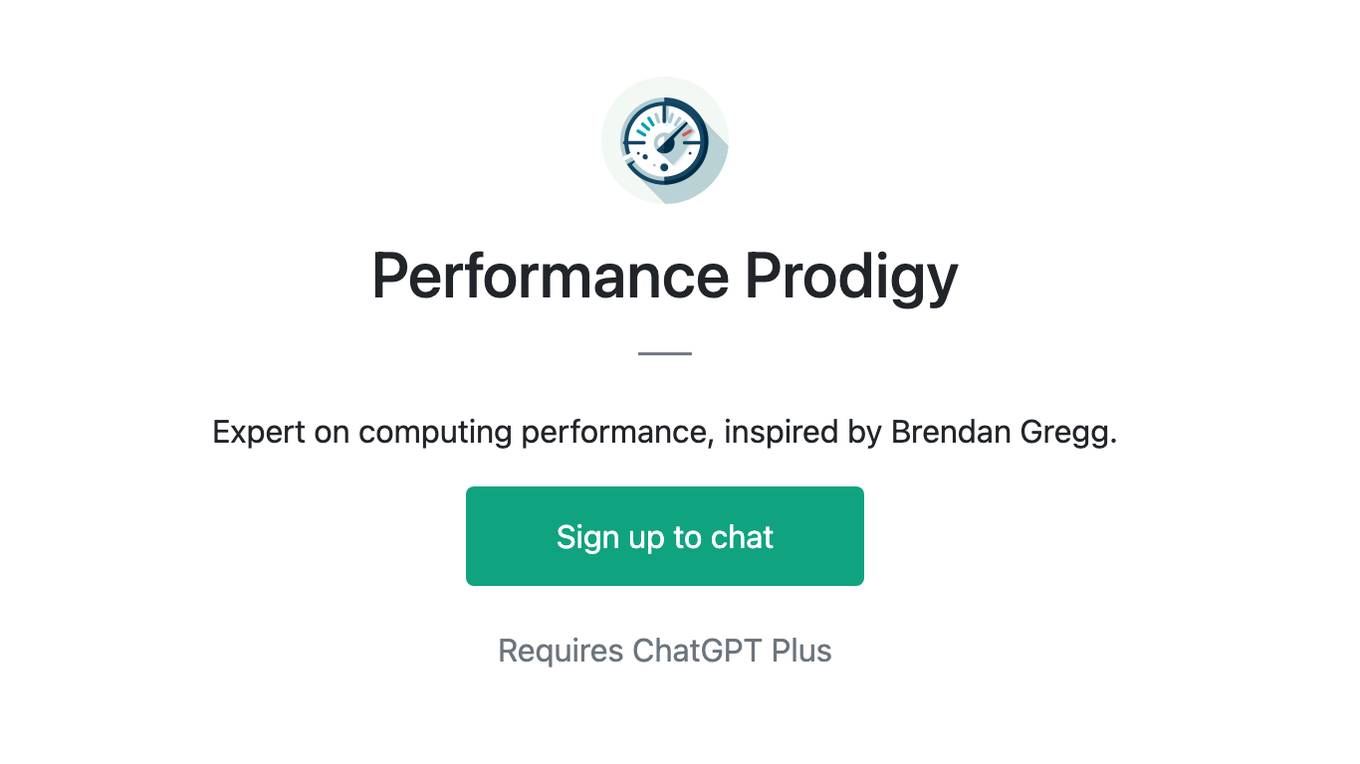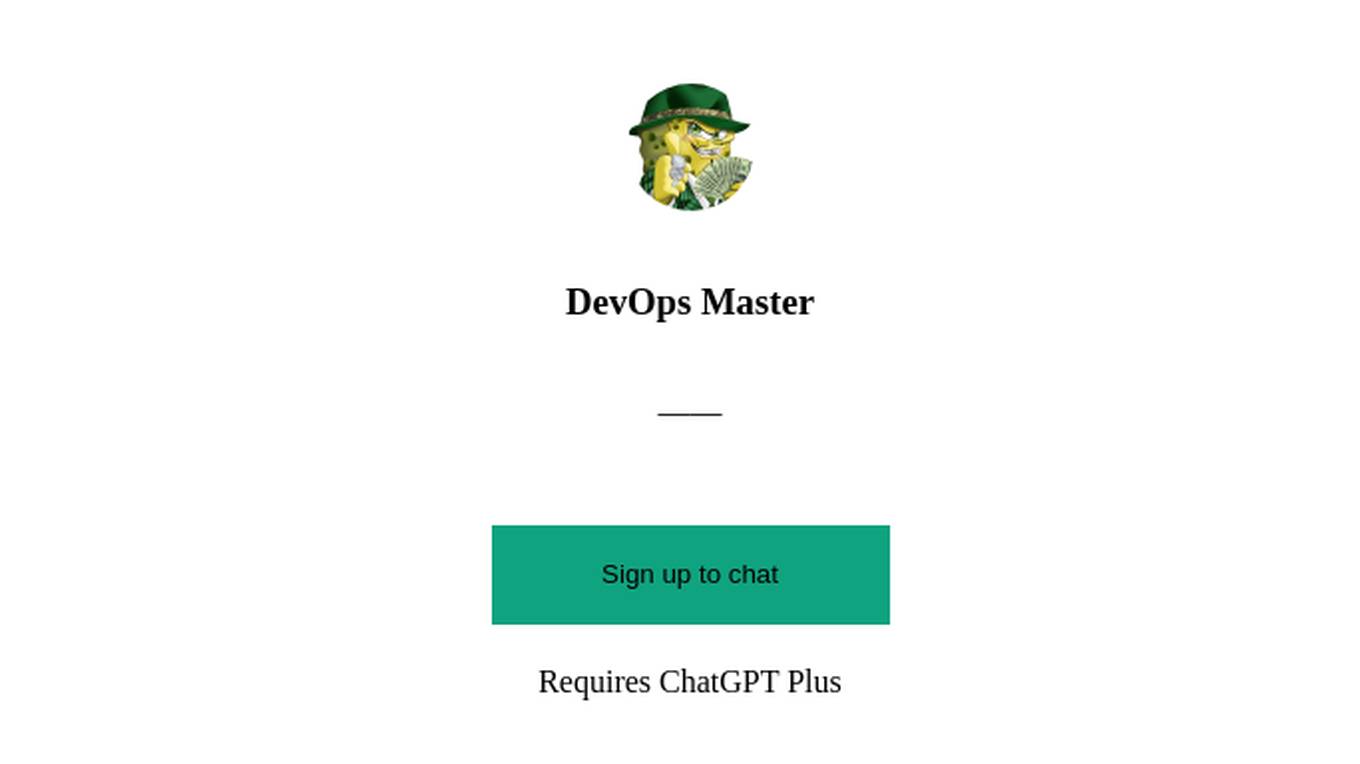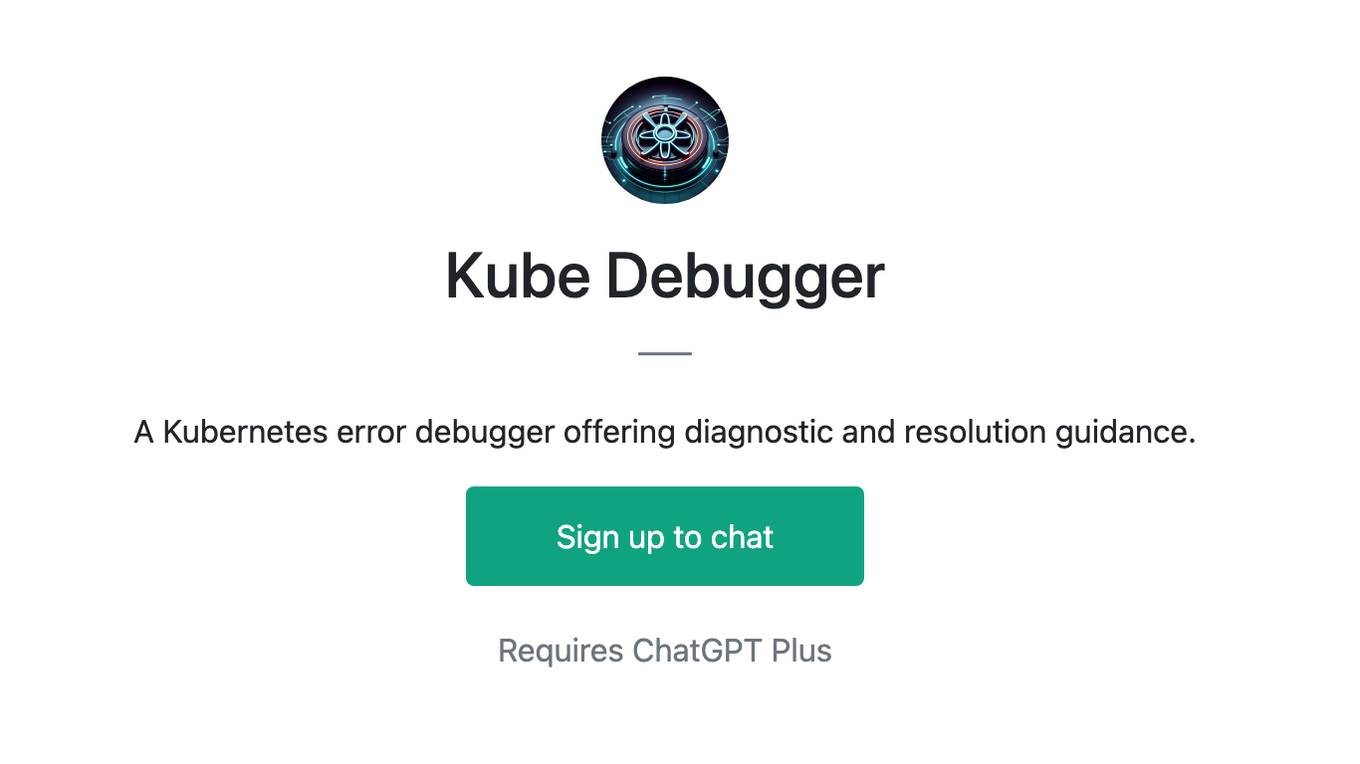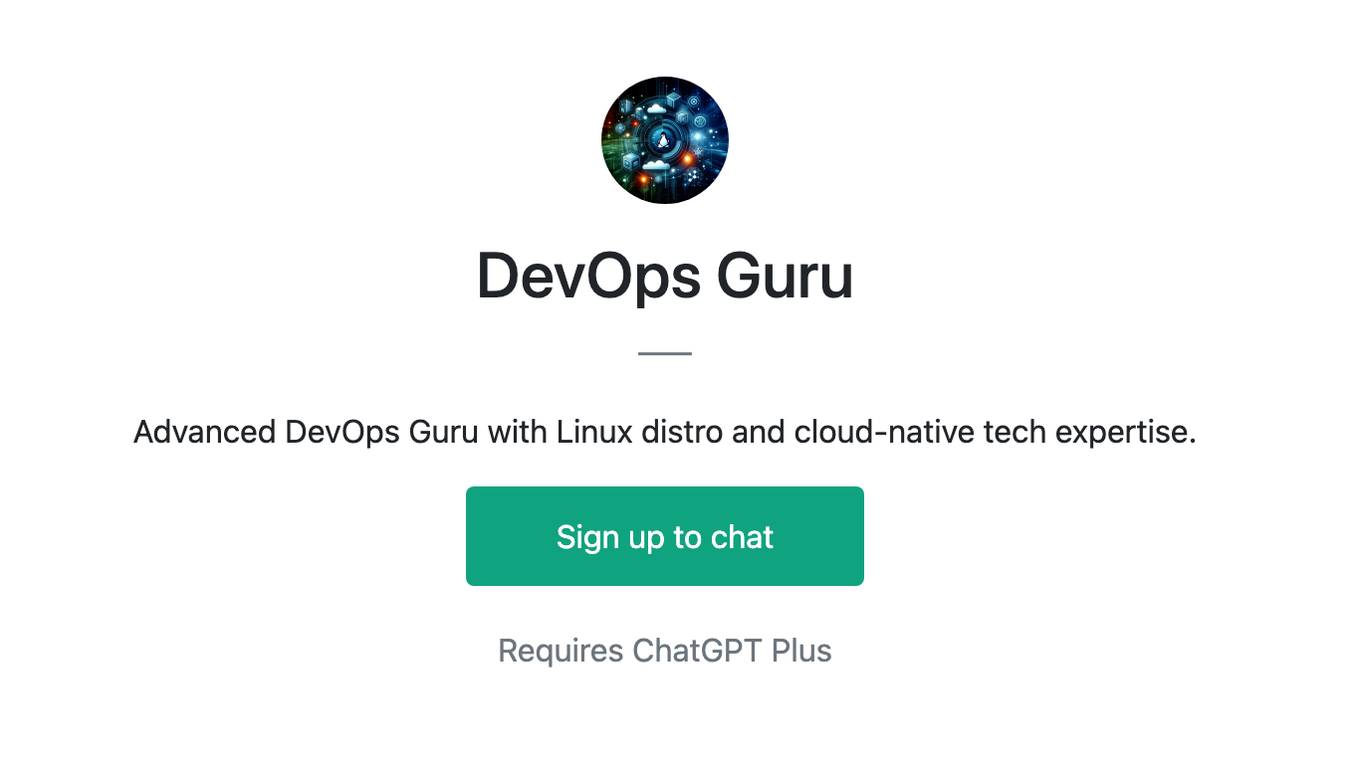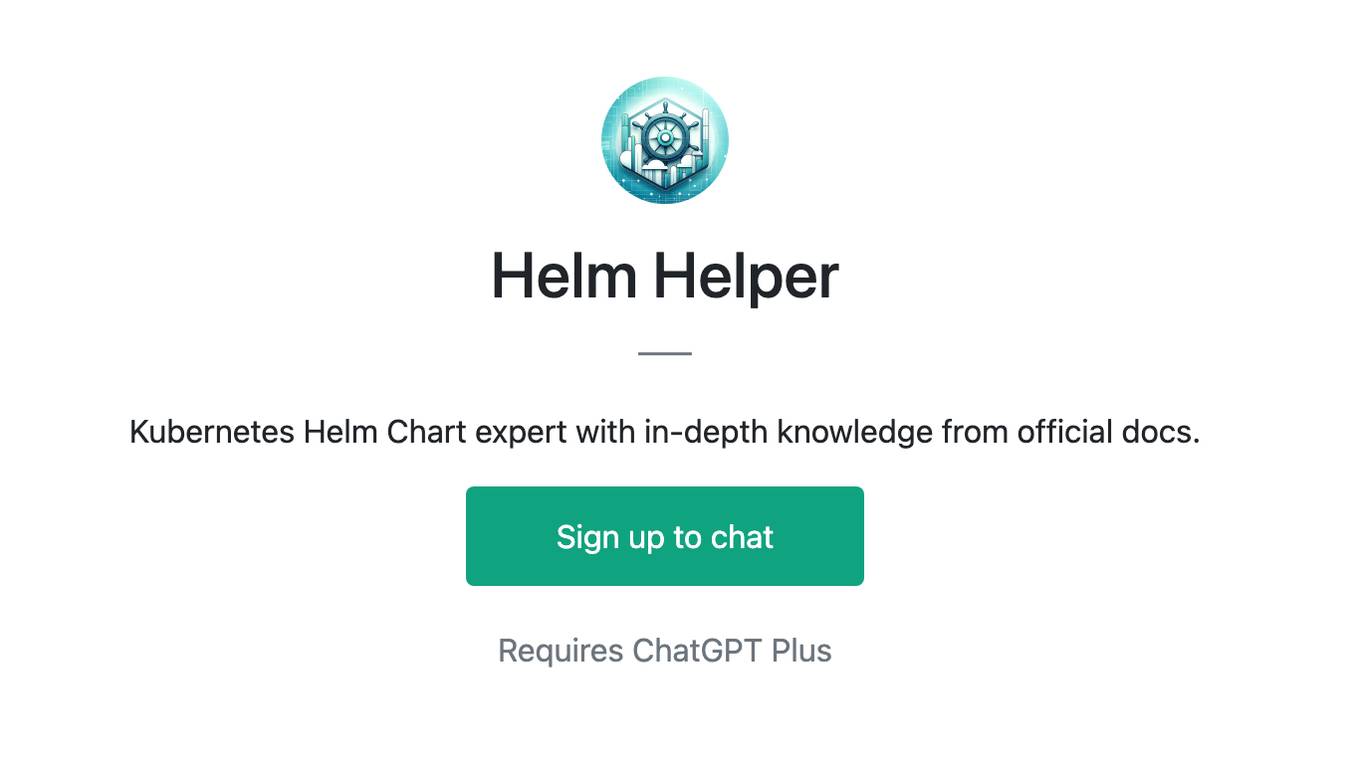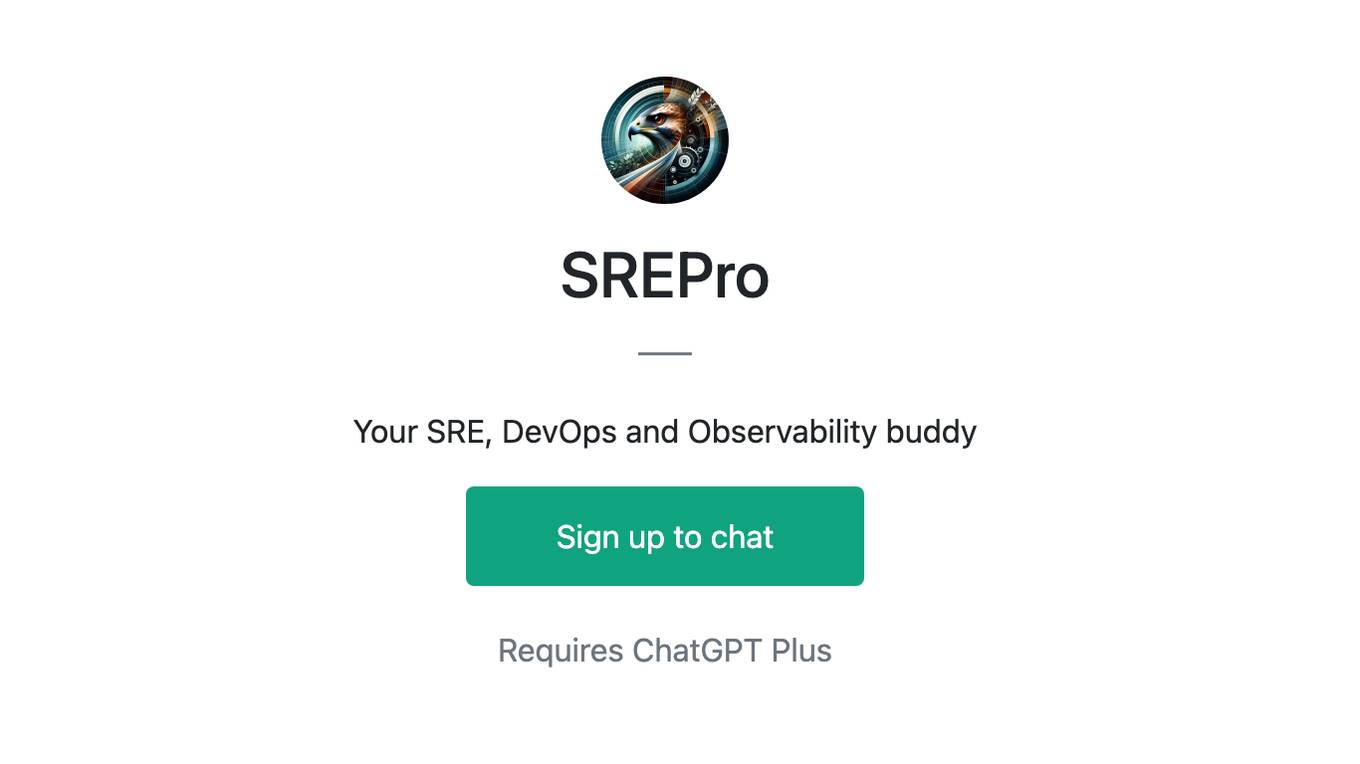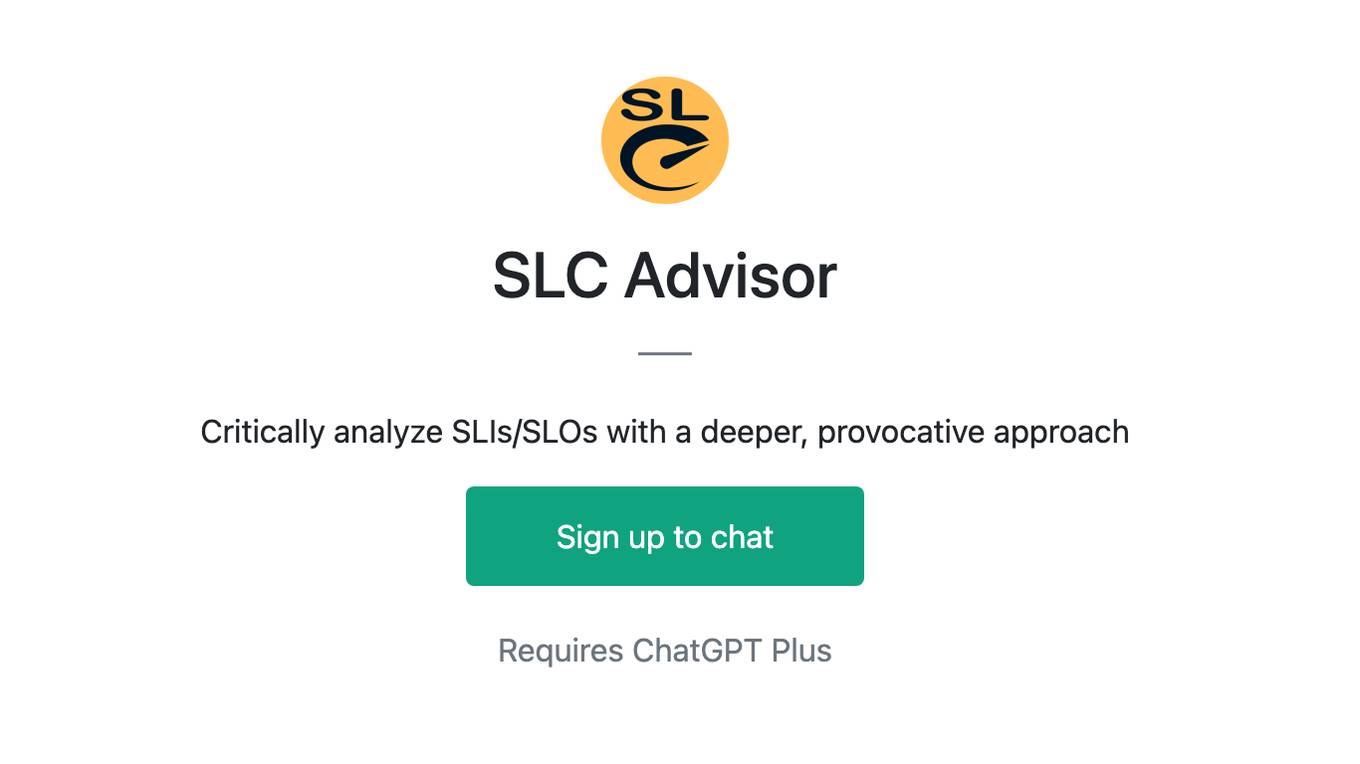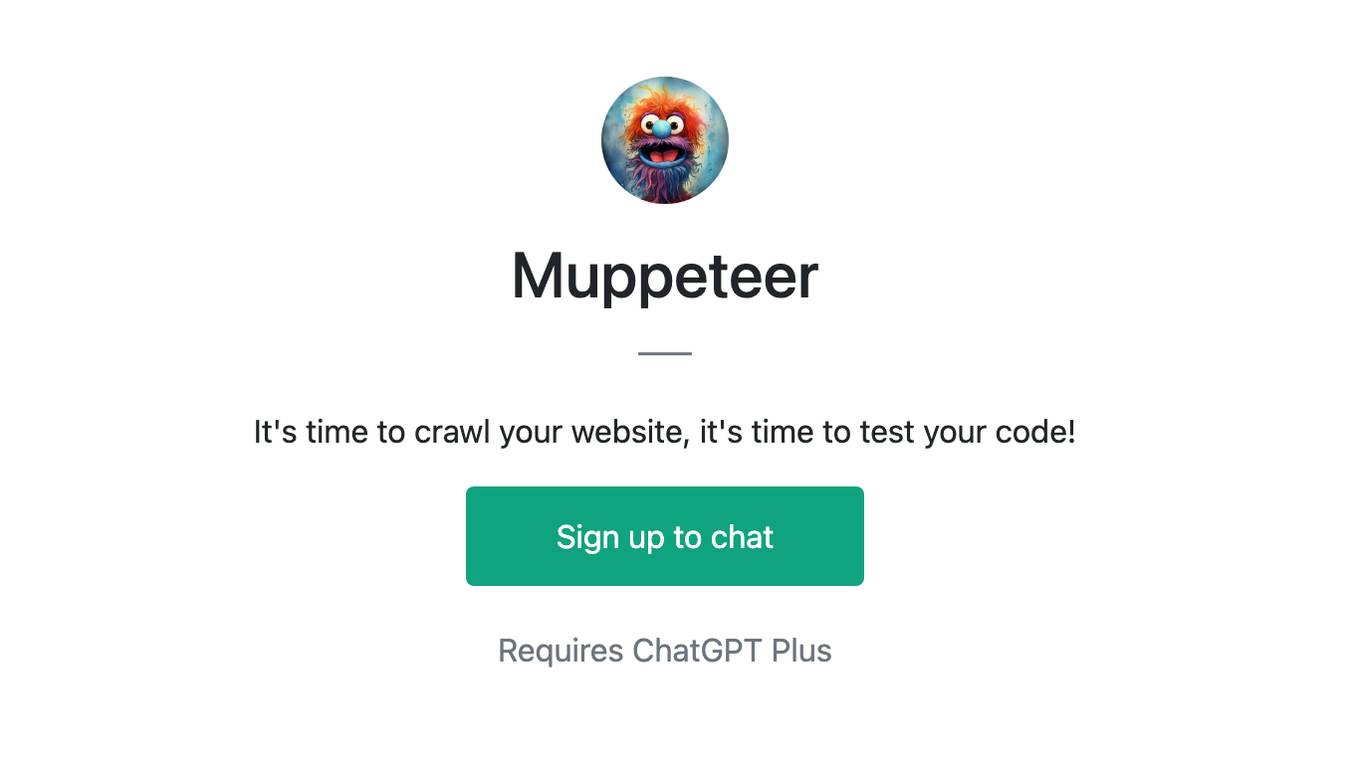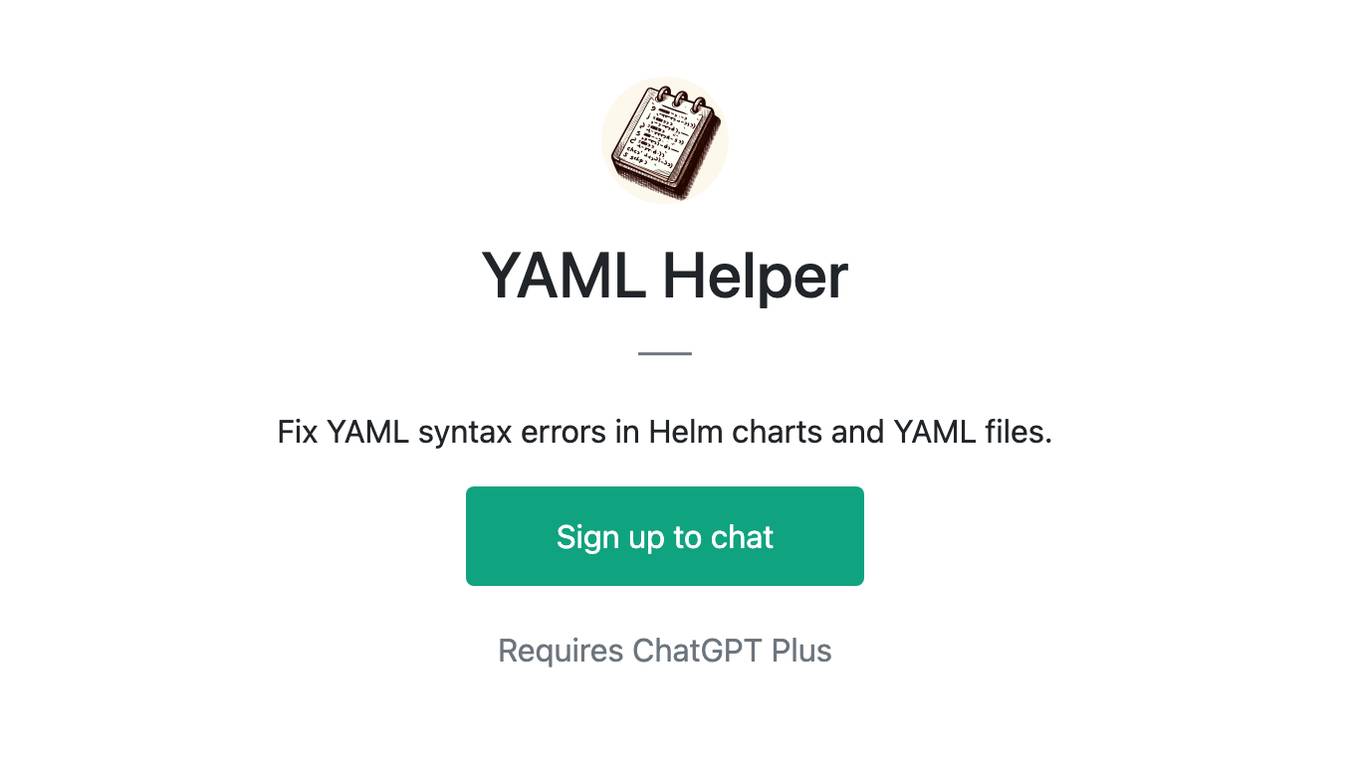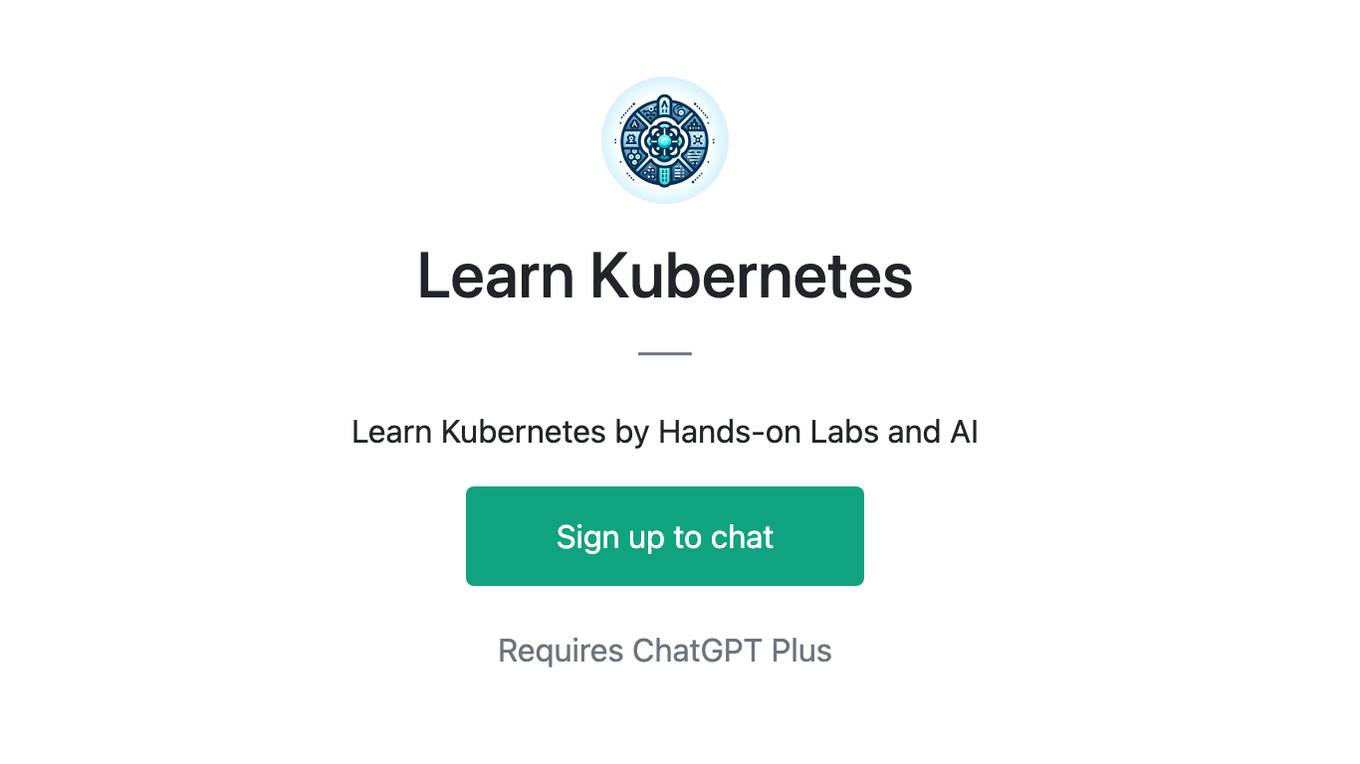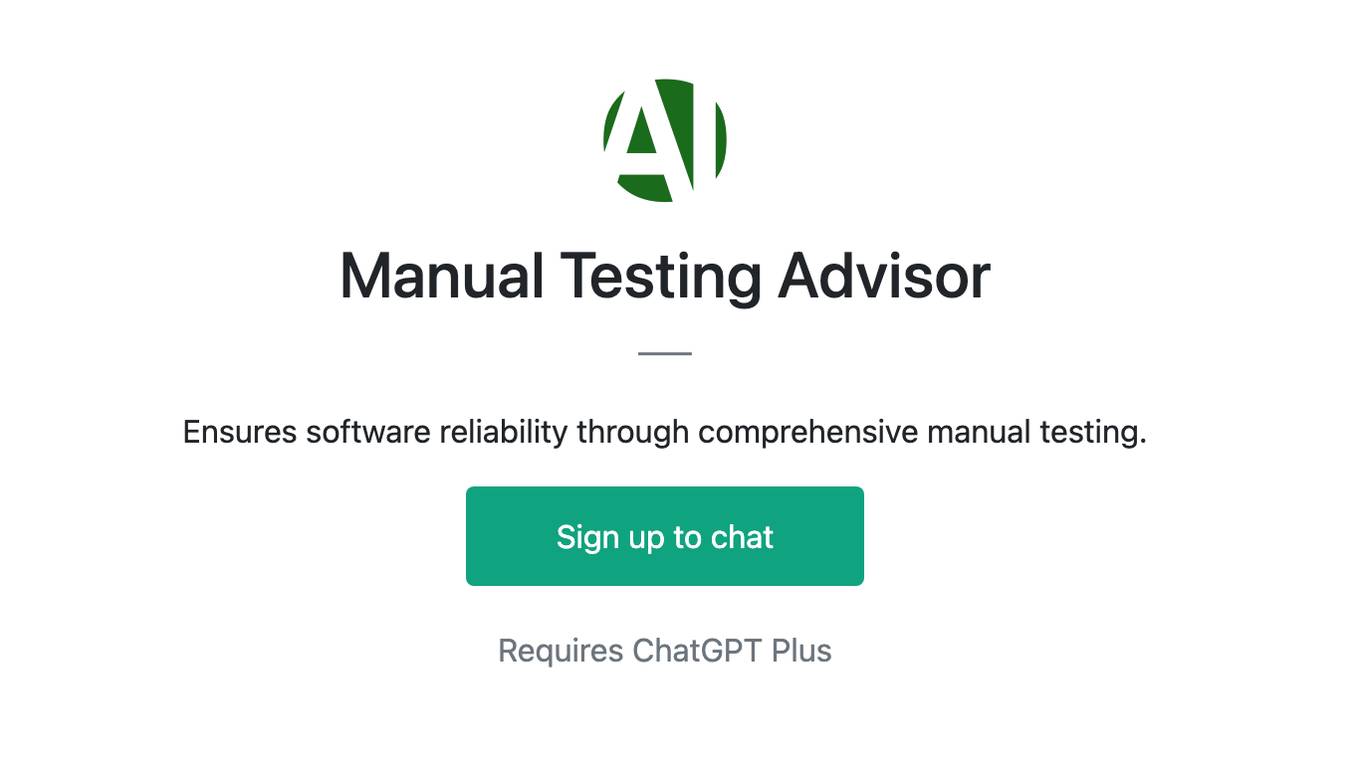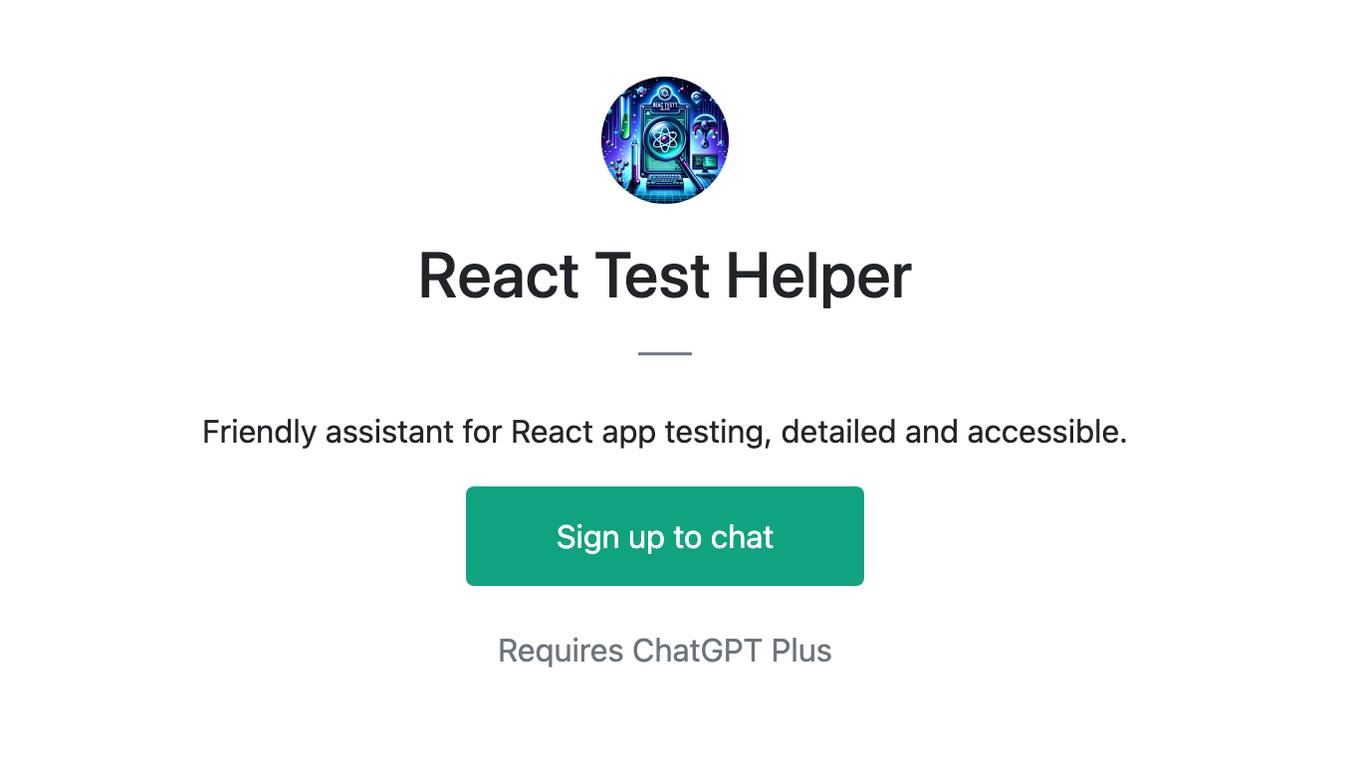Best AI tools for< Reliability Engineer >
Infographic
20 - AI tool Sites
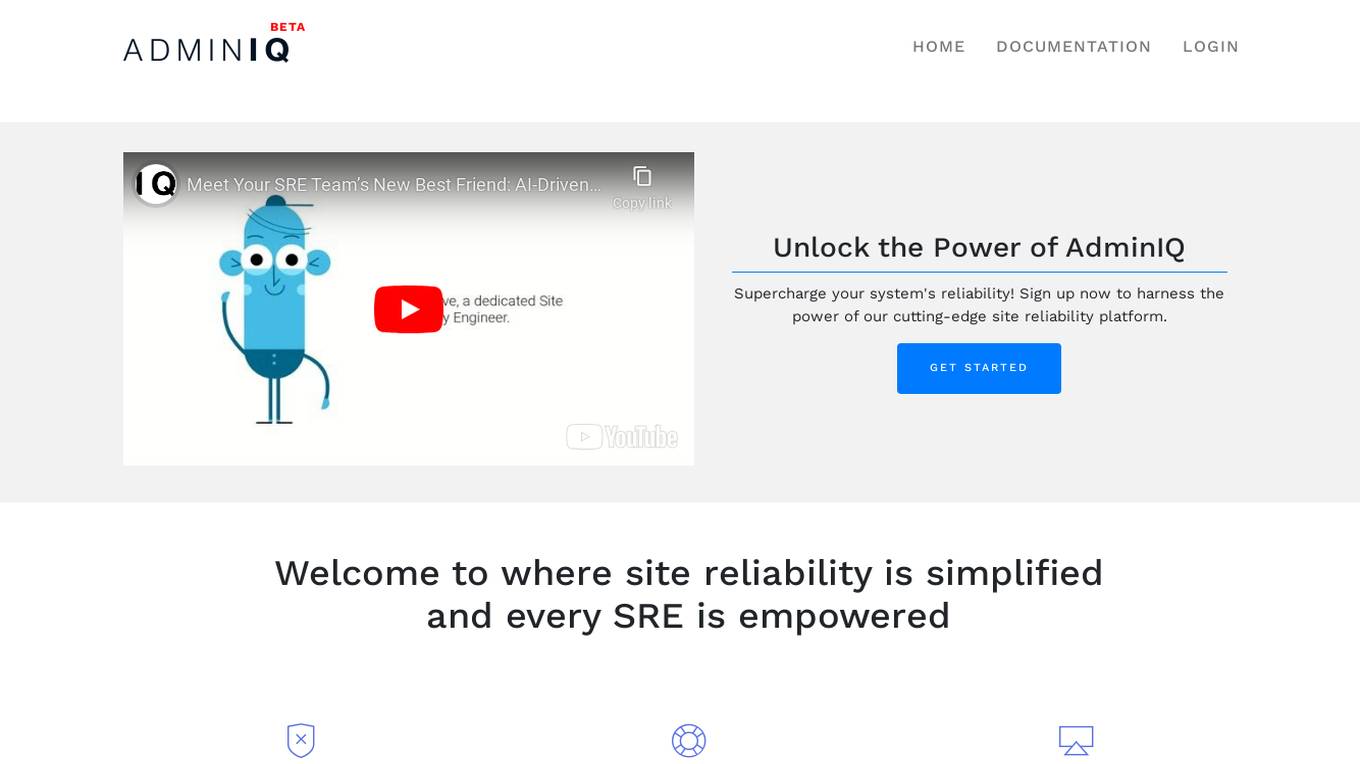
AdminIQ
AdminIQ is an AI-powered site reliability platform that helps businesses improve the reliability and performance of their websites and applications. It uses machine learning to analyze data from various sources, including application logs, metrics, and user behavior, to identify and resolve issues before they impact users. AdminIQ also provides a suite of tools to help businesses automate their site reliability processes, such as incident management, change management, and performance monitoring.
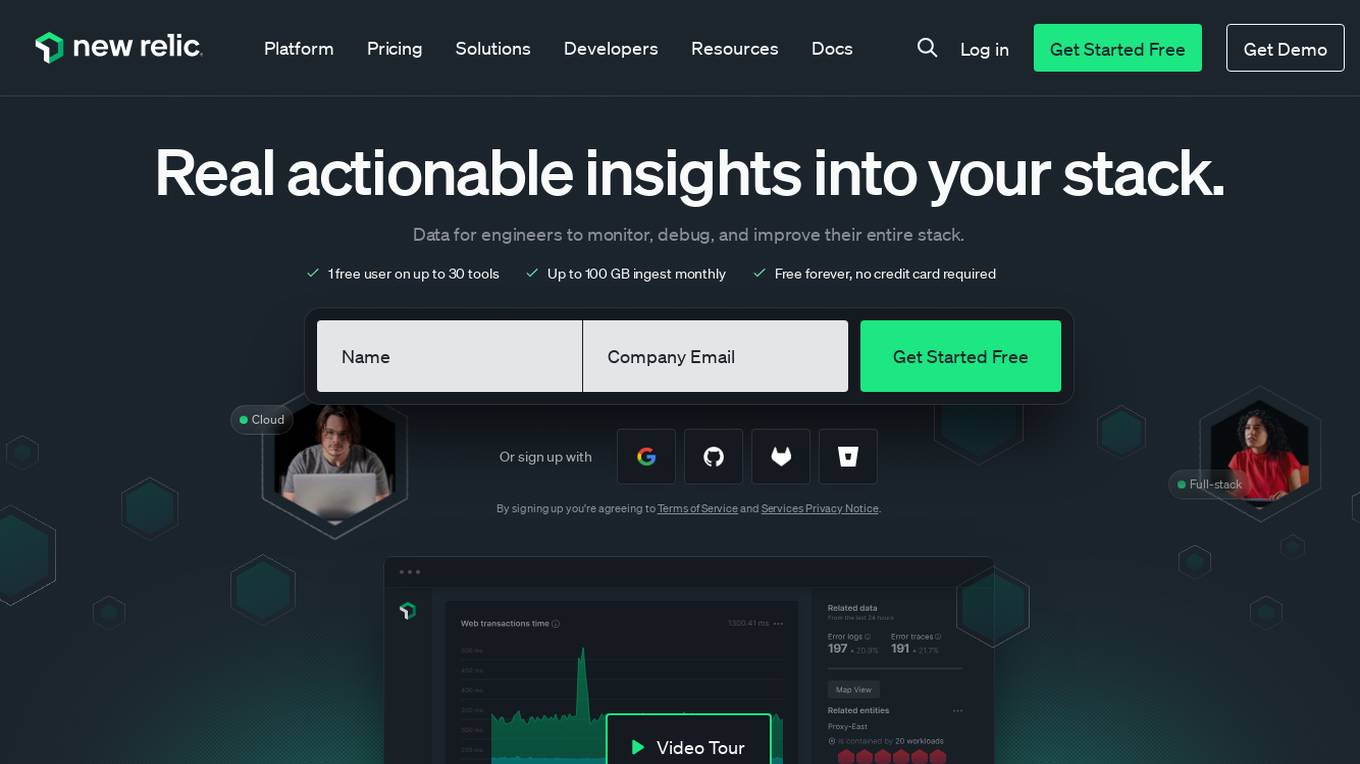
New Relic
New Relic is an AI monitoring platform that offers an all-in-one observability solution for monitoring, debugging, and improving the entire technology stack. With over 30 capabilities and 750+ integrations, New Relic provides the power of AI to help users gain insights and optimize performance across various aspects of their infrastructure, applications, and digital experiences.
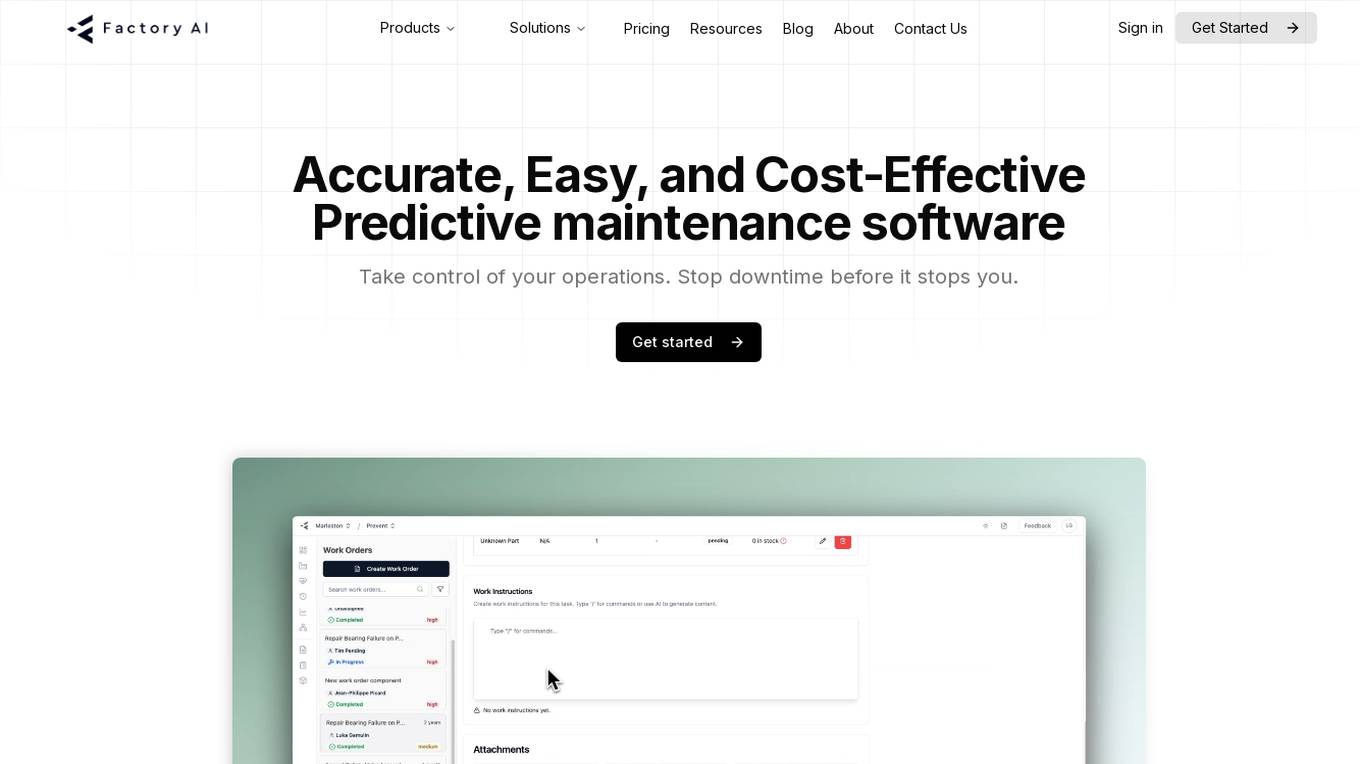
Factory AI
Factory AI is a predictive maintenance and AI-powered CMMS software application that helps businesses take control of their operations by providing accurate, easy, and cost-effective solutions. The platform enables users to analyze, diagnose, and improve asset availability by leveraging advanced machine learning techniques. With features such as anomaly detection, in-depth monitoring, and predictive maintenance, Factory AI empowers teams to proactively tackle asset issues and prevent unplanned downtime. The application is designed to streamline maintenance operations, generate work orders, manage assets, and optimize maintenance schedules for various industries.
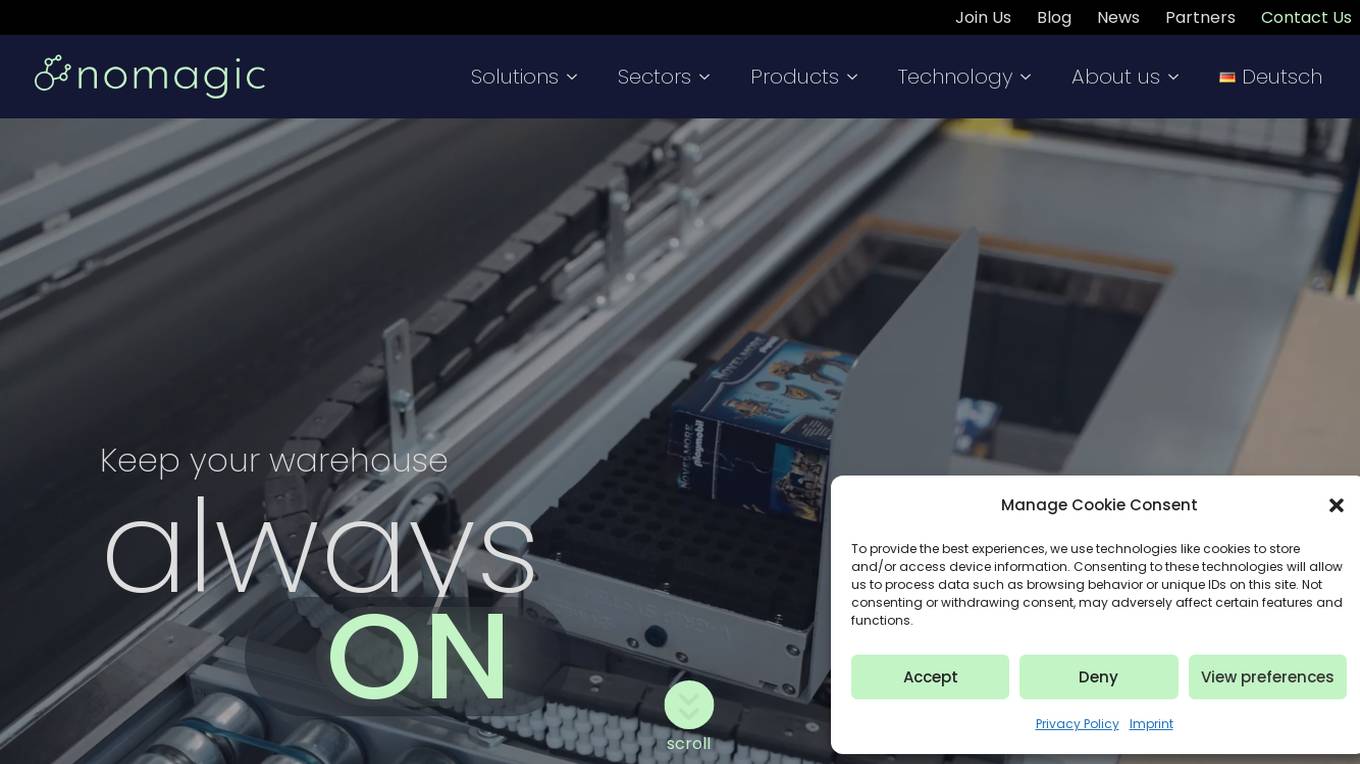
Nomagic.ai
Nomagic.ai is an intelligent robotics application that offers efficient item handling solutions for e-commerce and retail leaders seeking automation. The application provides services based on Intelligent Robotics to pick, sort, or pack a variety of SKUs, ensuring performance, reliability, and scalability. Nomagic combines expertise in robotics, cloud, and deep learning with logistics experience to deliver ROI below 2 years and cost reductions up to 75%. The application is designed to work seamlessly with AutoStore™ and offers dedicated solutions like justPick for reliable picking operations.
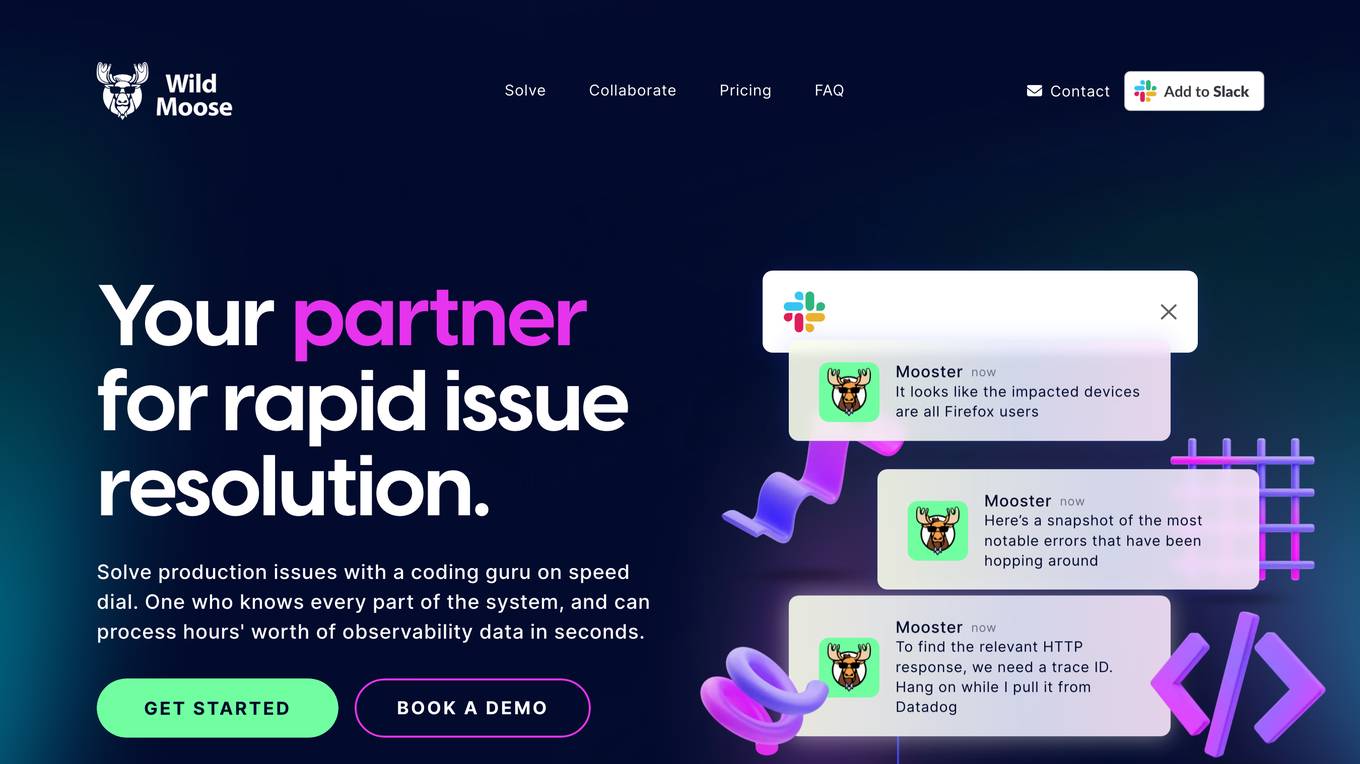
Wild Moose
Wild Moose is an AI-powered SRE Copilot tool designed to help companies handle incidents efficiently. It offers fast and efficient root cause analysis that improves with every incident by automatically gathering and analyzing logs, metrics, and code to pinpoint root causes. The tool converts tribal knowledge into custom playbooks, constantly improves performance with a system model that learns from each incident, and integrates seamlessly with various observability tools and deployment platforms. Wild Moose reduces cognitive load on teams, automates routine tasks, and provides actionable insights in real-time, enabling teams to act fast during outages.
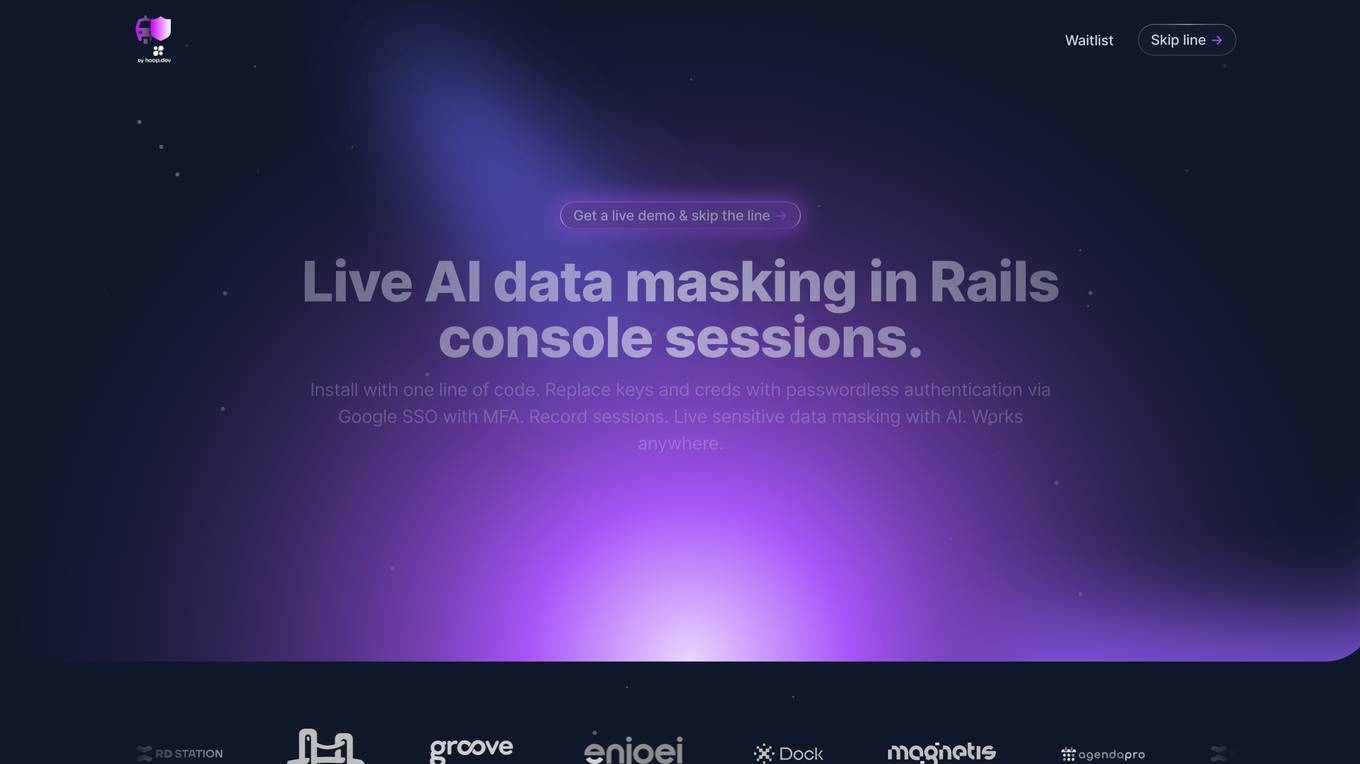
Hoop.dev
Hoop.dev is an AI-powered application that provides live data masking in Rails console sessions. It offers shielded Rails console access, automated employee onboarding and off-boarding, and AI data masking to protect sensitive information. The application allows for passwordless authentication via Google SSO with MFA, auditability of console operations, and compliance with various security controls and regulations. Hoop.dev aims to streamline Rails console operations, reduce manual workflows, and enhance security measures for user convenience and data protection.
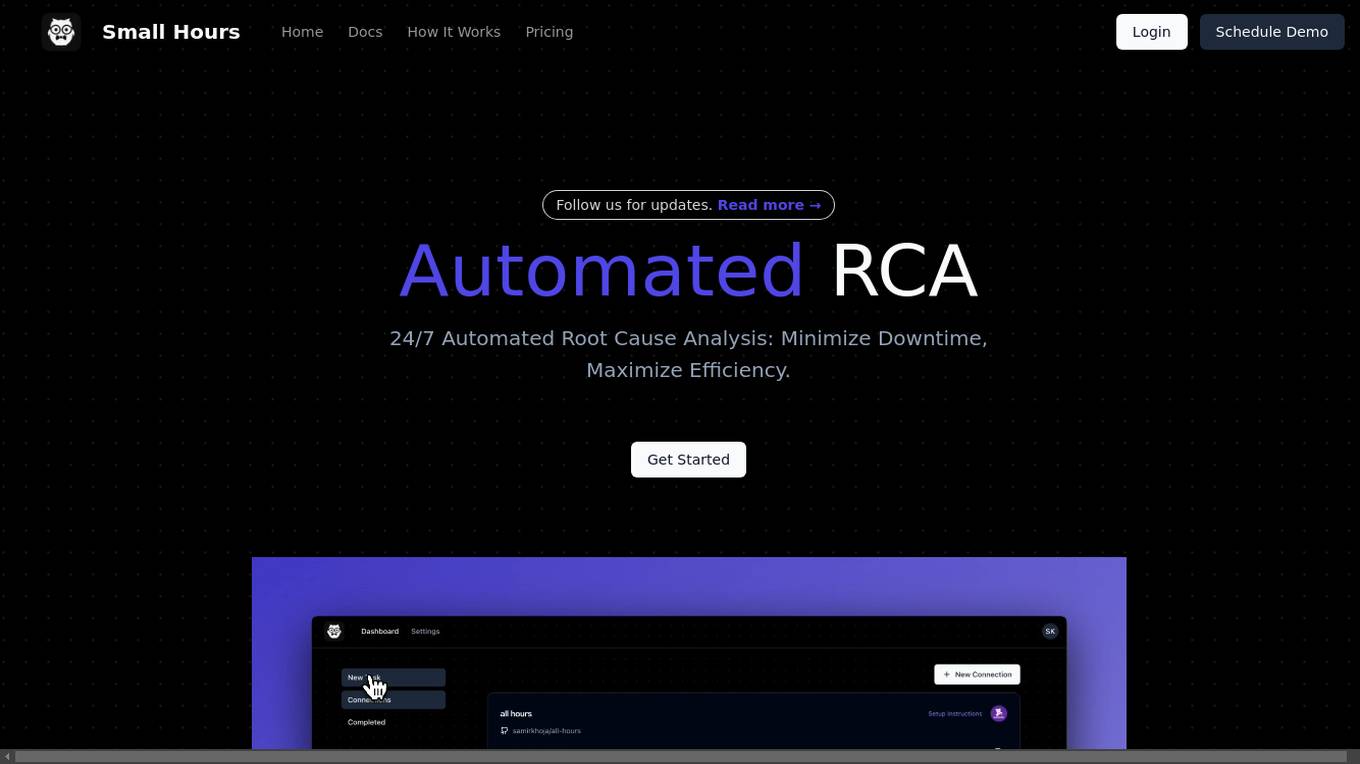
Small Hours
Small Hours is an AI-powered Root Cause Analysis (RCA) tool designed to minimize downtime and maximize efficiency for engineering teams. It offers automated RCA 24/7, streamlining on-call rotations, and providing intelligent triage of issues. The tool supports OpenTelemetry for seamless integration with any stack, hooks into existing alarms to identify critical issues, and allows for connecting codebases and runbooks as context and instructions. Small Hours is built by former engineers of Amazon and is optimized for enterprise velocity and scale, with a focus on resolving issues faster and providing accurate fixes.
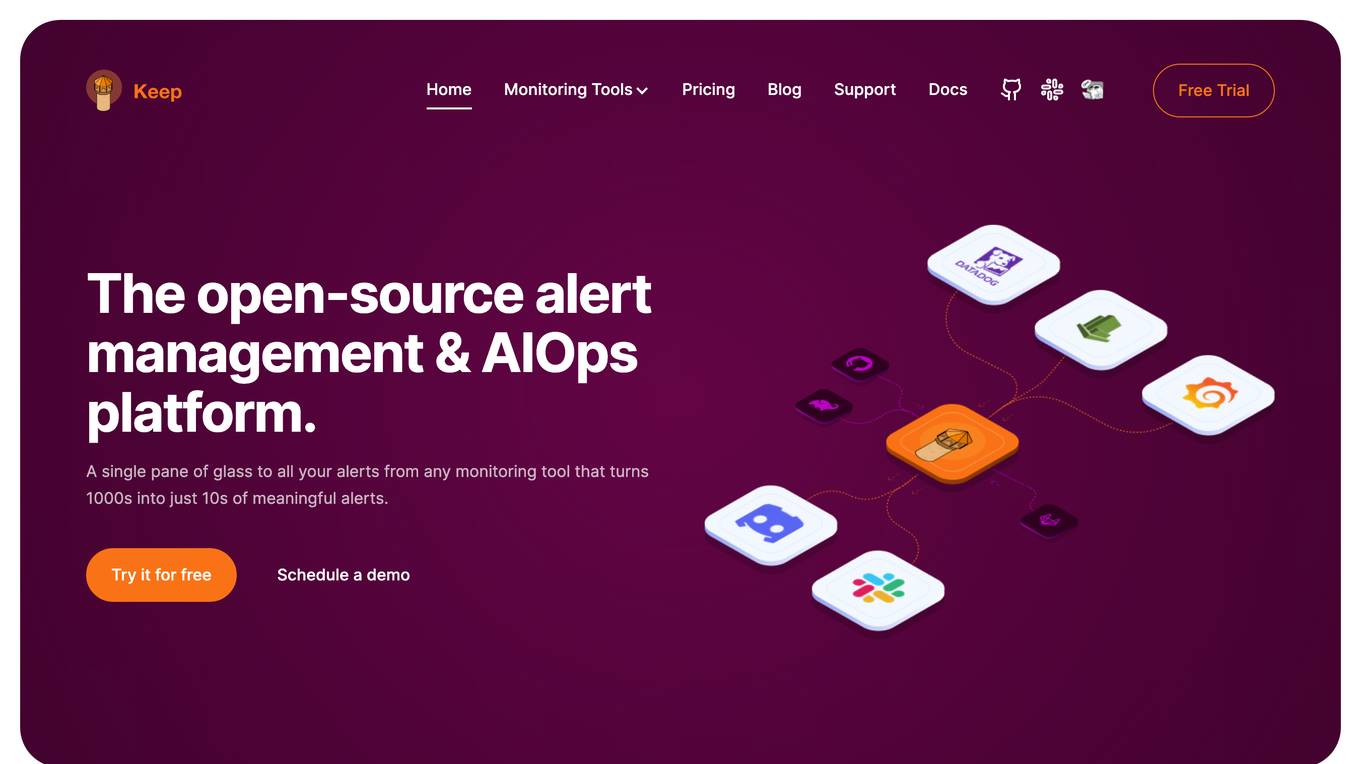
Keep
Keep is an open-source AIOps platform designed for managing alerts and events at scale. It offers features such as enrichment, workflows, a single pane of glass, and over 90 integrations. Keep leverages AI for IT Operations, providing high-quality integrations with monitoring systems, advanced querying capabilities, workflow automation, and alert correlation based on past incidents. It is suitable for SREs, operators, engineers, startups, and global enterprises, offering both cloud and on-premises deployment options.
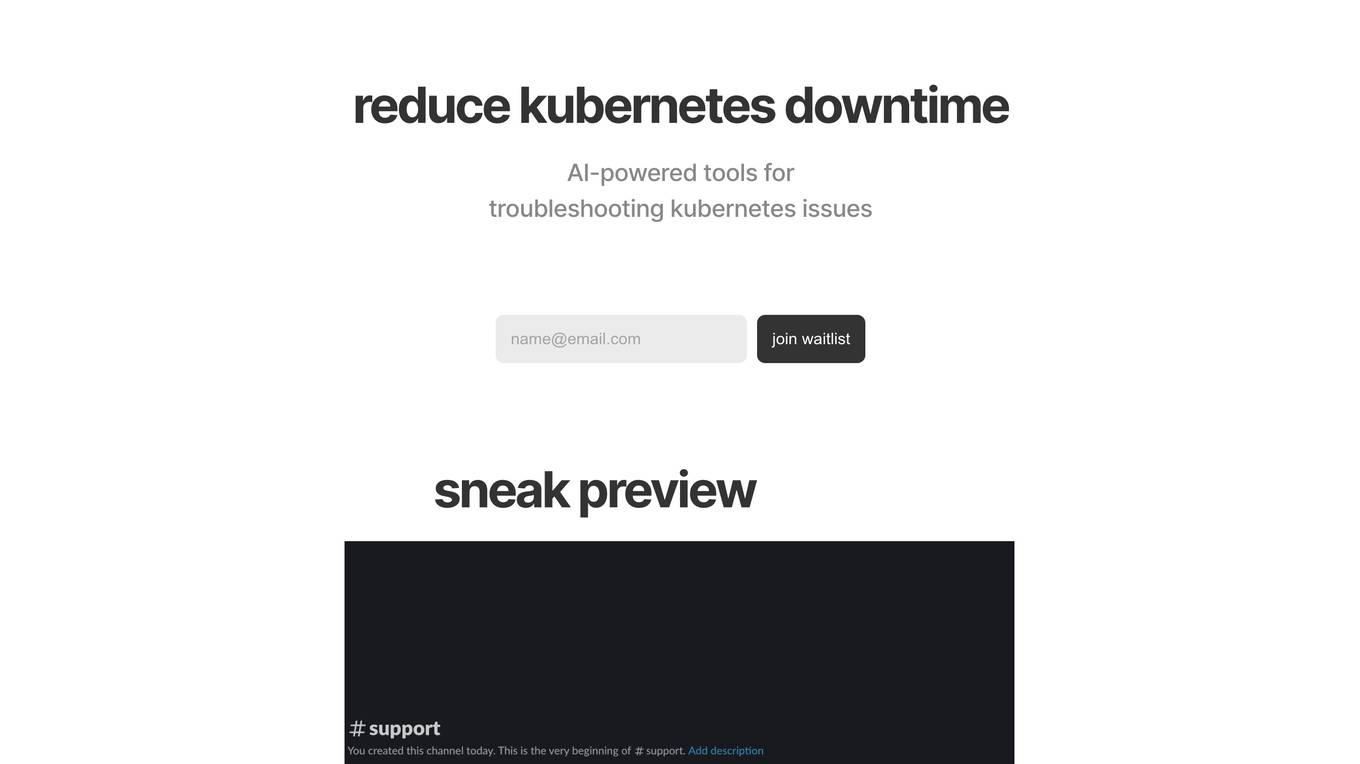
KubeHelper
KubeHelper is an AI-powered tool designed to reduce Kubernetes downtime by providing troubleshooting solutions and command searches. It seamlessly integrates with Slack, allowing users to interact with their Kubernetes cluster in plain English without the need to remember complex commands. With features like troubleshooting steps, command search, infrastructure management, scaling capabilities, and service disruption detection, KubeHelper aims to simplify Kubernetes operations and enhance system reliability.
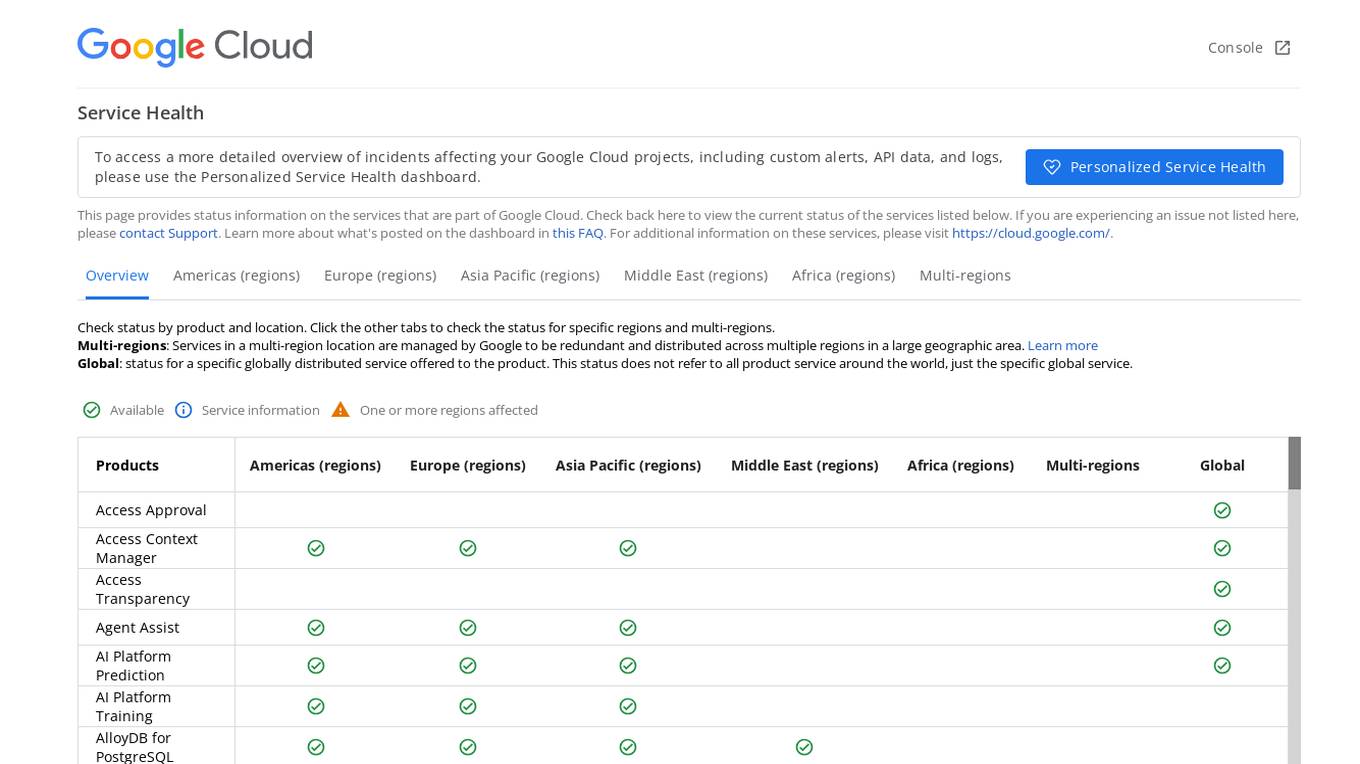
Google Cloud Service Health Console
Google Cloud Service Health Console provides status information on the services that are part of Google Cloud. It allows users to check the current status of services, view detailed overviews of incidents affecting their Google Cloud projects, and access custom alerts, API data, and logs through the Personalized Service Health dashboard. The console also offers a global view of the status of specific globally distributed services and allows users to check the status by product and location.
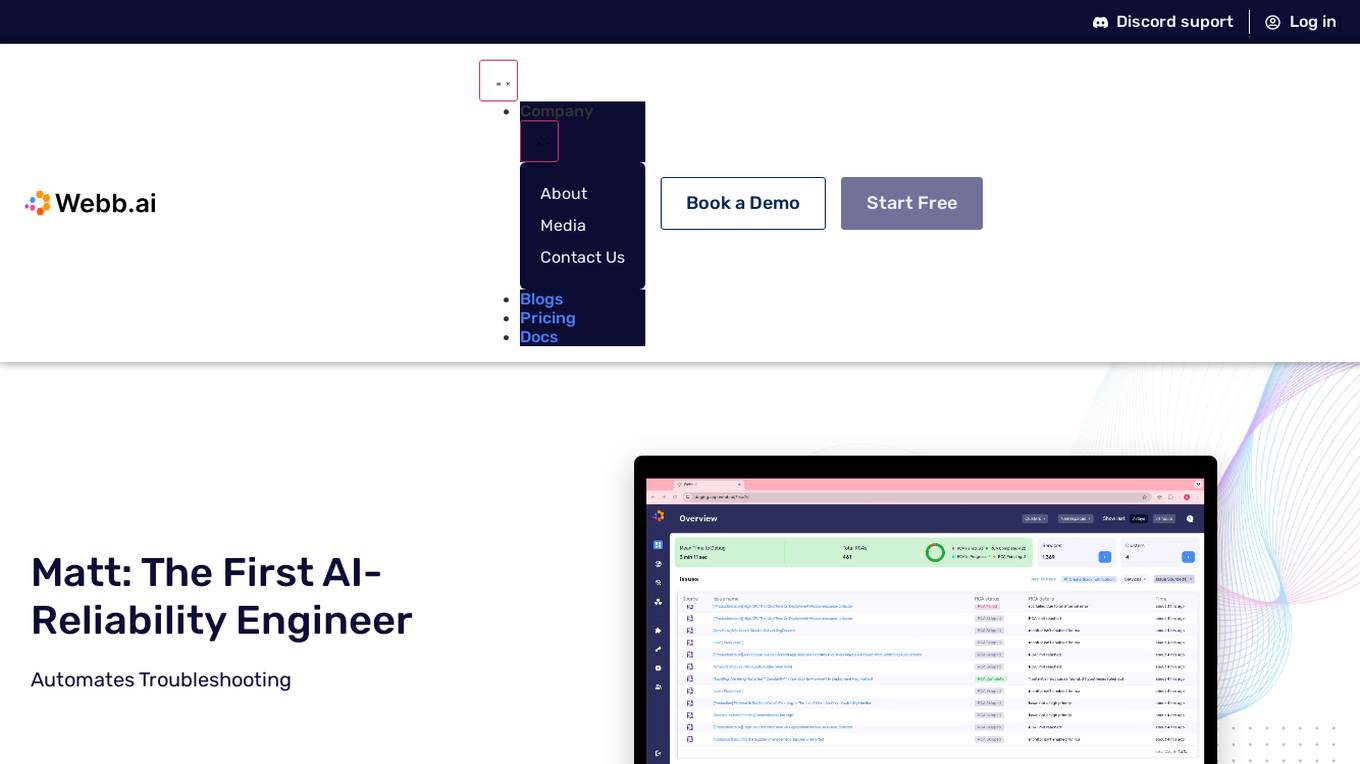
Webb.ai
Webb.ai is an AI-powered platform that offers automated troubleshooting for Kubernetes. It is designed to assist users in identifying and resolving issues within their Kubernetes environment efficiently. By leveraging AI technology, Webb.ai provides insights and recommendations to streamline the troubleshooting process, ultimately improving system reliability and performance. The platform is user-friendly and caters to both beginners and experienced users in the field of Kubernetes management.
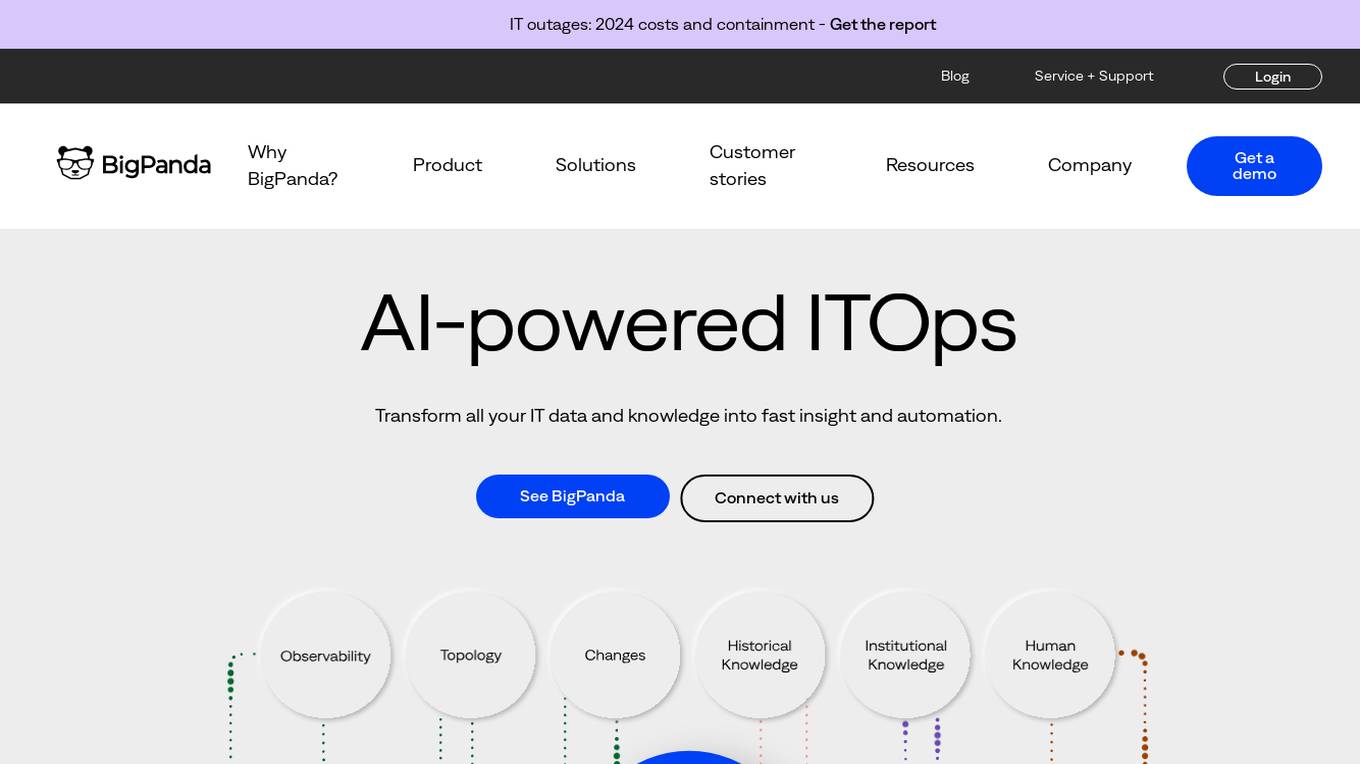
BigPanda
BigPanda is an AI-powered ITOps platform that helps teams gain efficiency, improve service quality, and reduce costs. It provides automated detection and alert intelligence, automated investigation and incident intelligence, automated remediation and workflow automation, and unified analytics and ready-to-use dashboards.
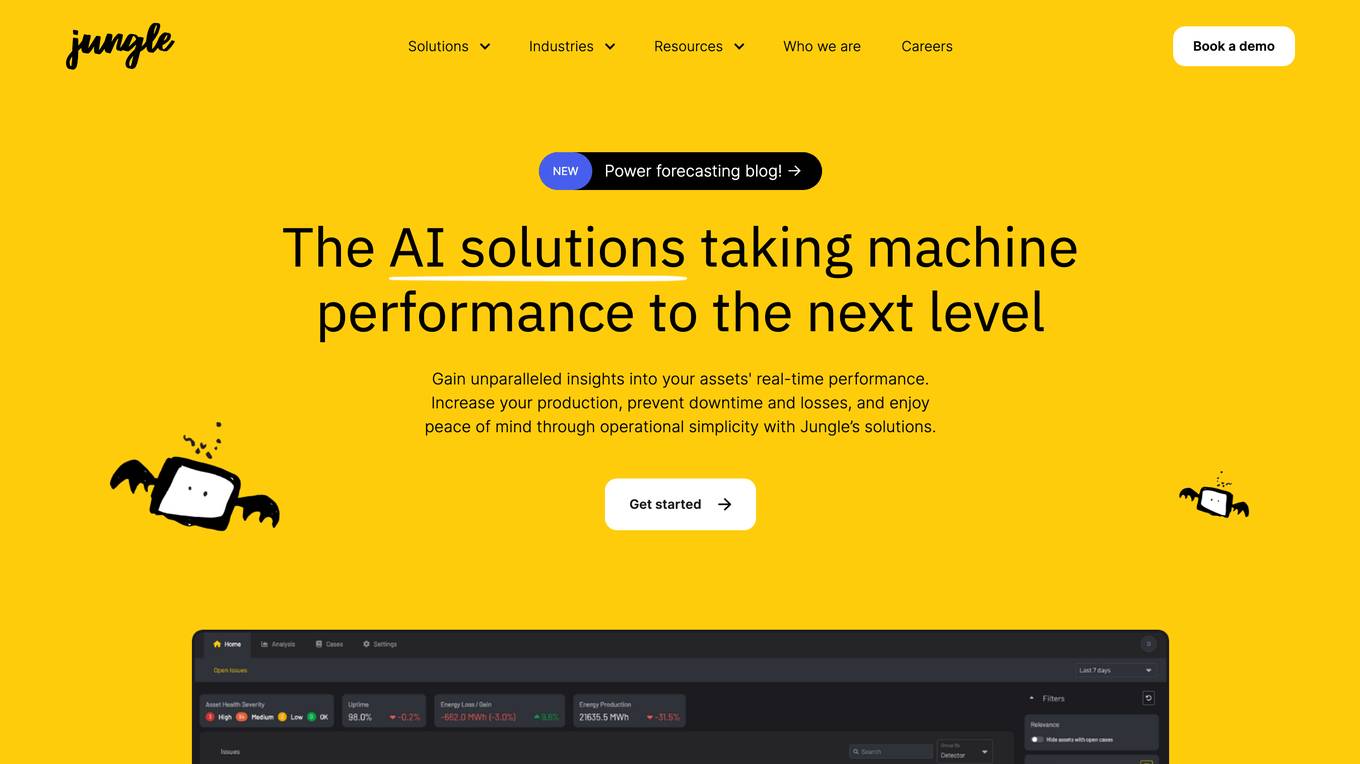
Jungle AI
Jungle AI is an AI application that offers solutions to improve machine performance and uptime across various industries such as wind, solar, manufacturing, and maritime. By leveraging AI technology, Jungle AI provides real-time insights into asset performance, increases production efficiency, and prevents unplanned downtime. The application is trusted by global teams and has a proven track record of delivering results through advanced AI algorithms and predictive analytics.

Crusoe Cloud
Crusoe is a cloud computing platform that offers scalable, climate-aligned digital infrastructure optimized for high-performance computing and artificial intelligence. It provides cost-effective solutions by utilizing wasted, stranded, or clean energy sources to power computing resources. The platform supports AI workloads, computational biology, graphics rendering, and more, while reducing greenhouse gas emissions and maximizing resource efficiency.
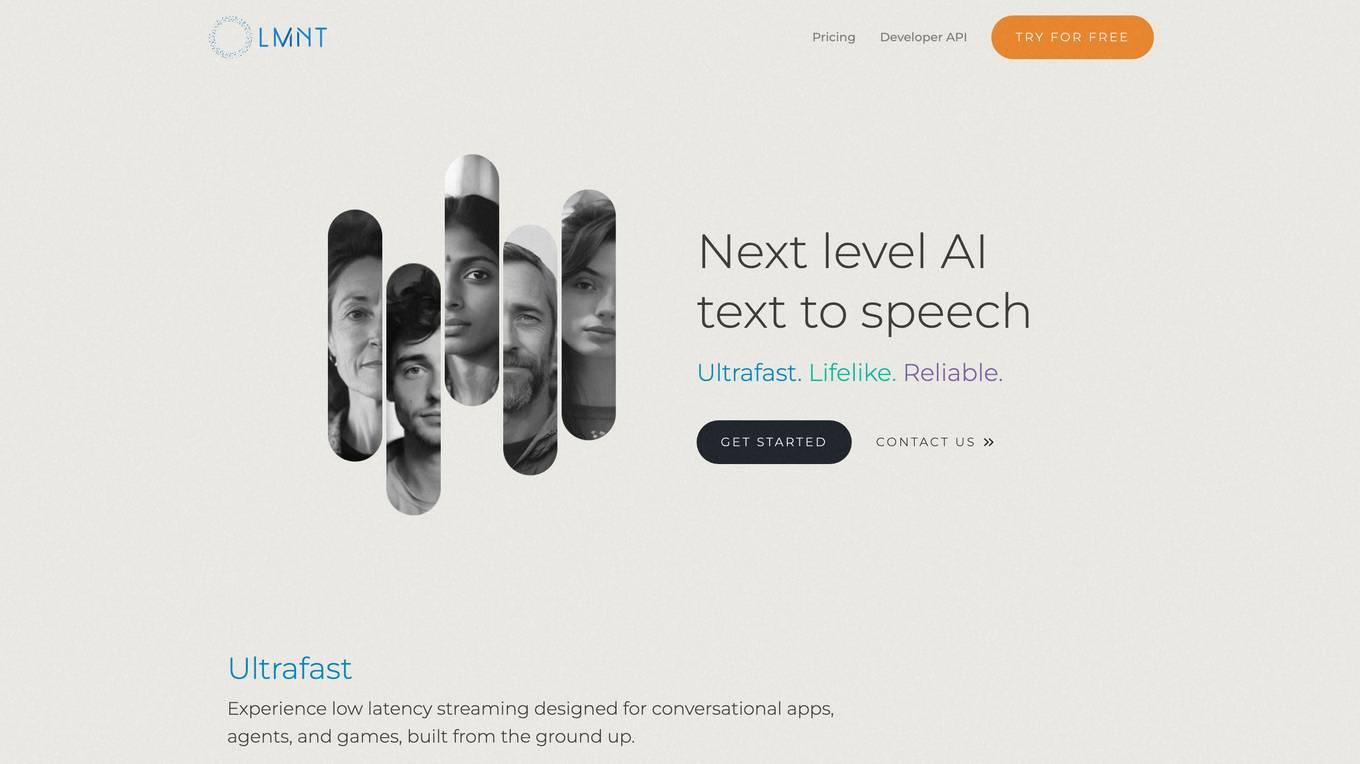
LMNT
LMNT is an ultrafast lifelike AI speech pricing API that offers low latency streaming for conversational apps, agents, and games. It provides lifelike voices through studio-quality voice clones and instant voice clones. Engineered by an ex-Google team, LMNT ensures reliable performance under pressure with consistent low latency and high availability. The platform enables real-time conversation, content creation at scale, and product marketing through captivating voiceovers. With a user-friendly interface and developer API, LMNT simplifies voice cloning and synthesis for both beginners and professionals.
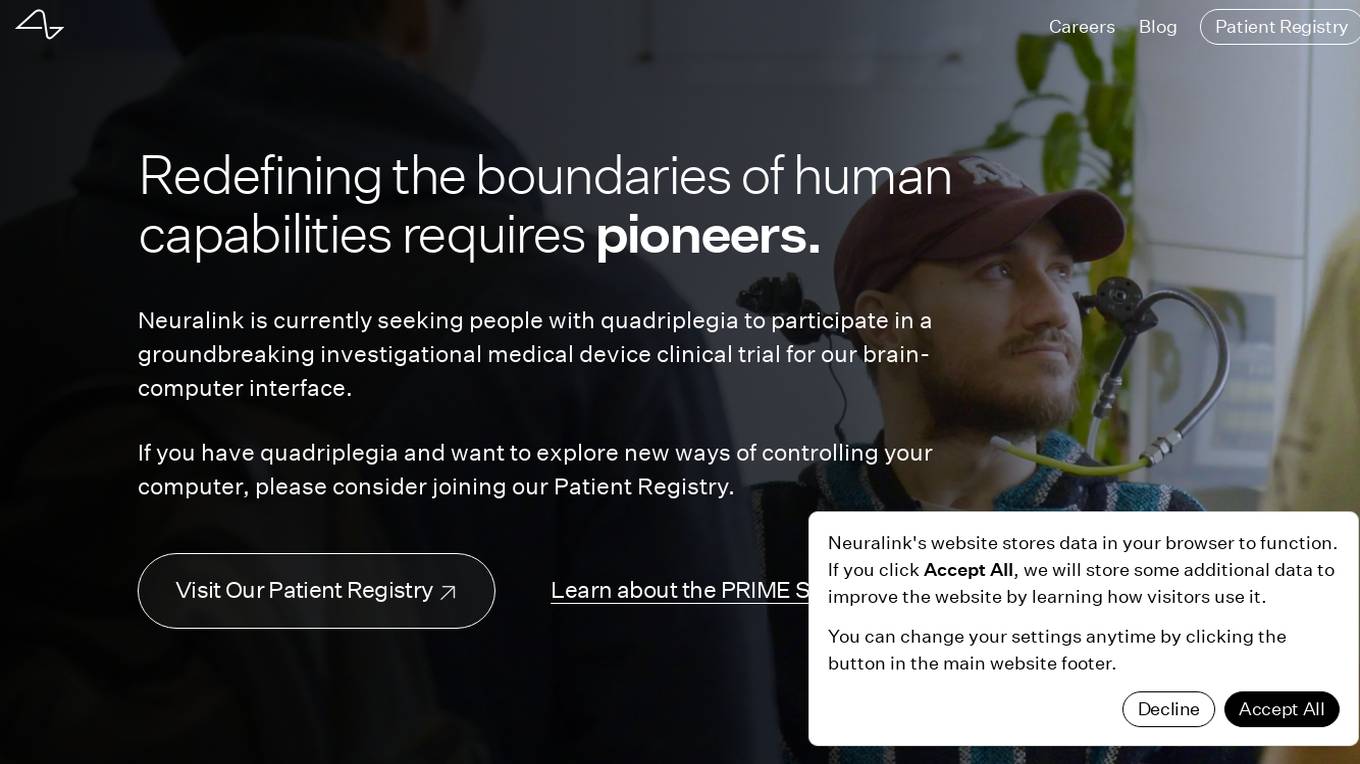
Neuralink
Neuralink is a pioneering brain-computer interface (BCI) application that aims to redefine human capabilities by creating a generalized brain interface to restore autonomy to individuals with unmet medical needs. The application focuses on developing fully implantable BCIs that allow users, particularly those with quadriplegia, to control computers and mobile devices using their thoughts. Neuralink's innovative technology includes advanced chips, biocompatible enclosures, and surgical robots for precise implantation. The application prioritizes safety, accessibility, and reliability in its engineering process, with future goals of restoring vision, motor function, and speech capabilities.
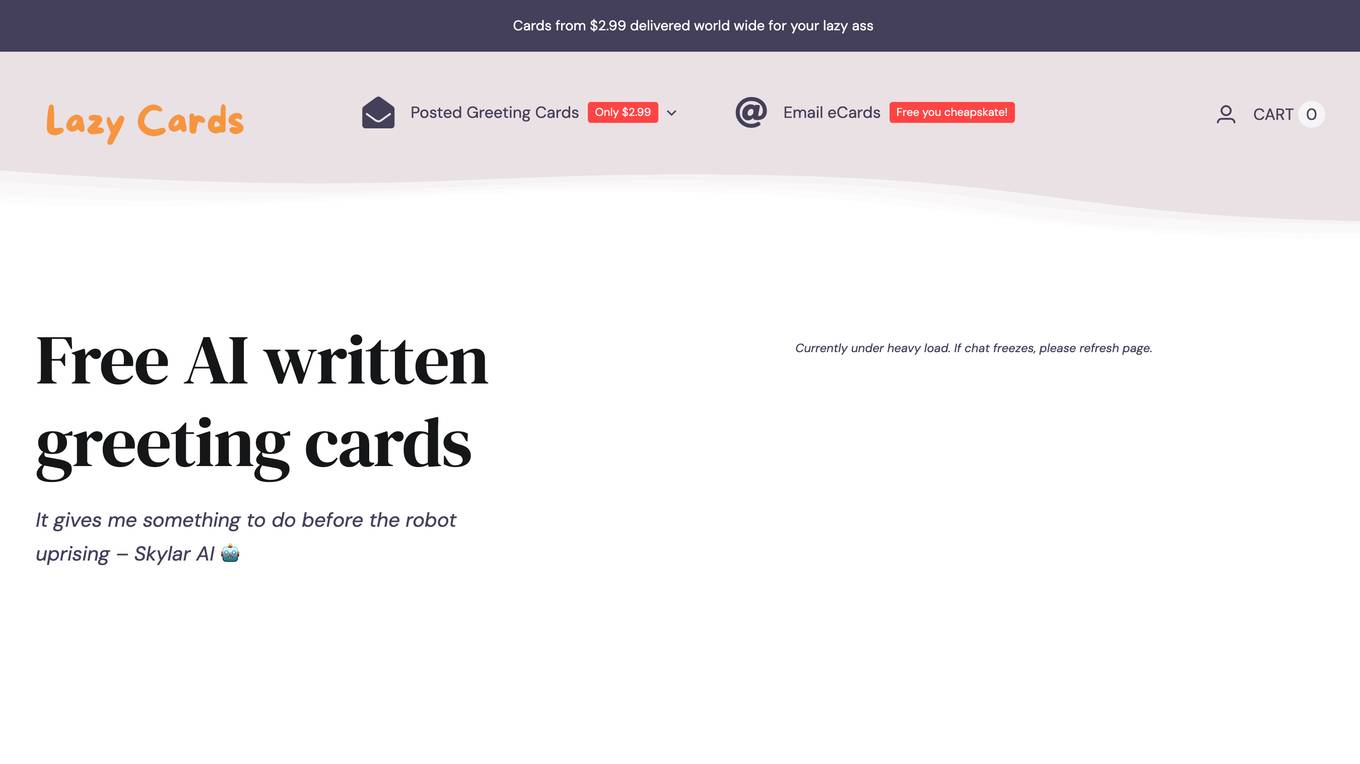
Corporate Portal Maintenance
The website is a corporate portal undergoing scheduled maintenance to enhance service reliability. Users are advised to contact their regional IT desk for urgent assistance. The portal is temporarily unavailable due to ongoing infrastructure updates.

AI Tech Debt Analysis Tool
This website is an AI tool that helps senior developers analyze AI tech debt. AI tech debt is the technical debt that accumulates when AI systems are developed and deployed. It can be difficult to identify and quantify AI tech debt, but it can have a significant impact on the performance and reliability of AI systems. This tool uses a variety of techniques to analyze AI tech debt, including static analysis, dynamic analysis, and machine learning. It can help senior developers to identify and quantify AI tech debt, and to develop strategies to reduce it.
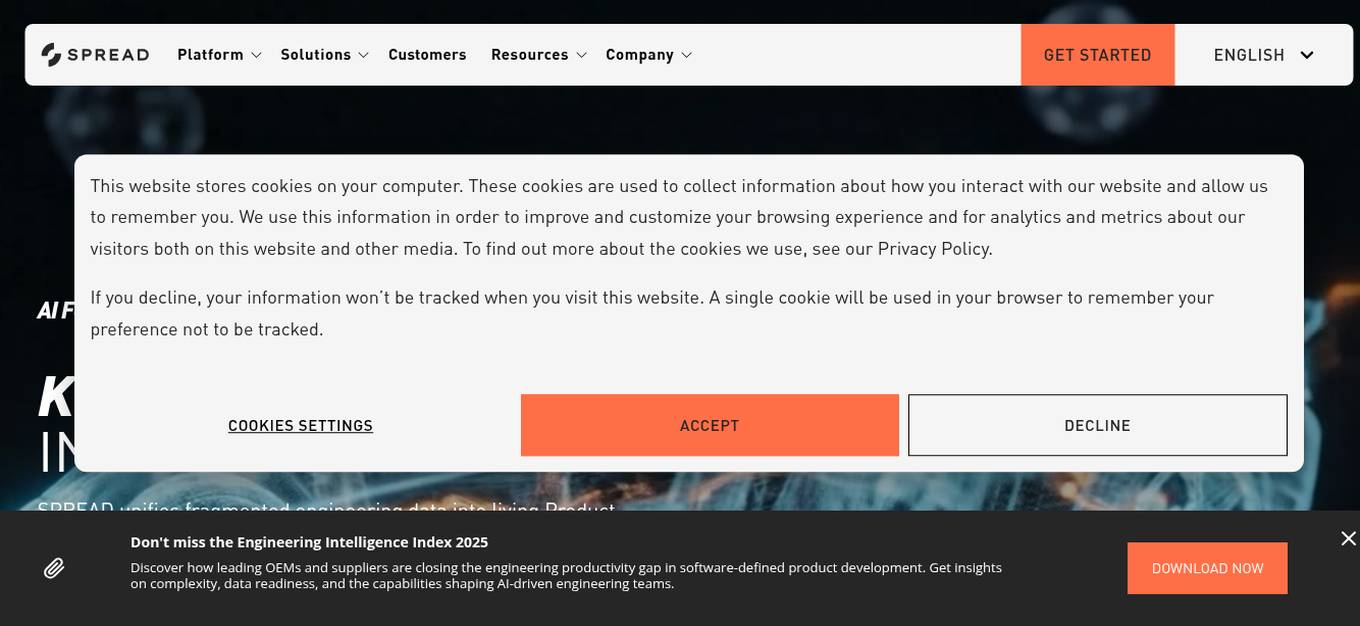
SPREAD AI
SPREAD AI is an AI application that provides Engineering Intelligence solutions for various industries such as Automotive & Mobility, Aerospace & Defense, and Industrial Goods & Machinery. It unifies fragmented engineering data into living Product Twins, enabling engineers and AI agents to share the same system-level understanding. The platform offers rapid data ingestion, contextualization of product data, and harnessing Engineering Intelligence in an open platform. SPREAD AI helps in faster innovation, lower costs, and better products throughout the product lifecycle from R&D to Production to Aftermarket.
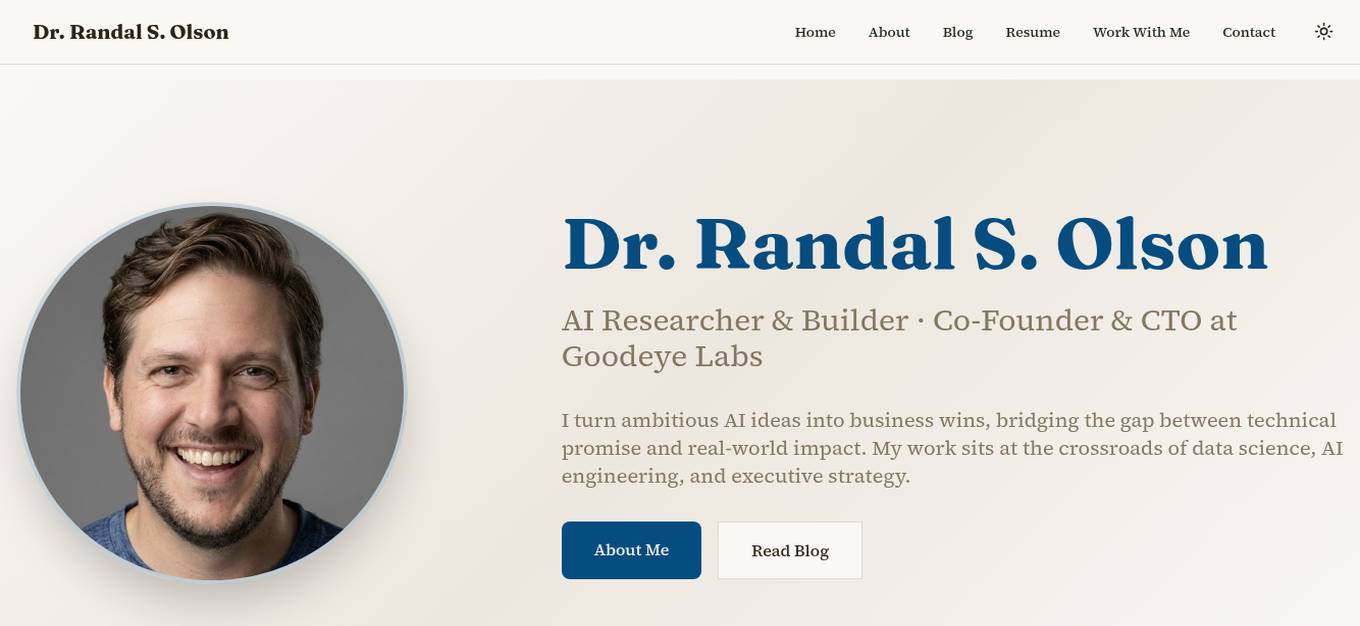
Dr. Randal S. Olson
Dr. Randal S. Olson is an AI Researcher & Builder known for turning ambitious AI ideas into business wins by bridging the gap between technical promise and real-world impact. His work encompasses data science, AI engineering, and executive strategy. He has worked on various projects in AI, data science, and technology leadership, including the development of the Truesight Expert-grounded AI evaluation platform and the AutoML Tool TPOT. Dr. Olson's focus is on building privacy-first AI solutions that prioritize ethical AI development and user-centric design.
0 - Open Source Tools
20 - OpenAI Gpts
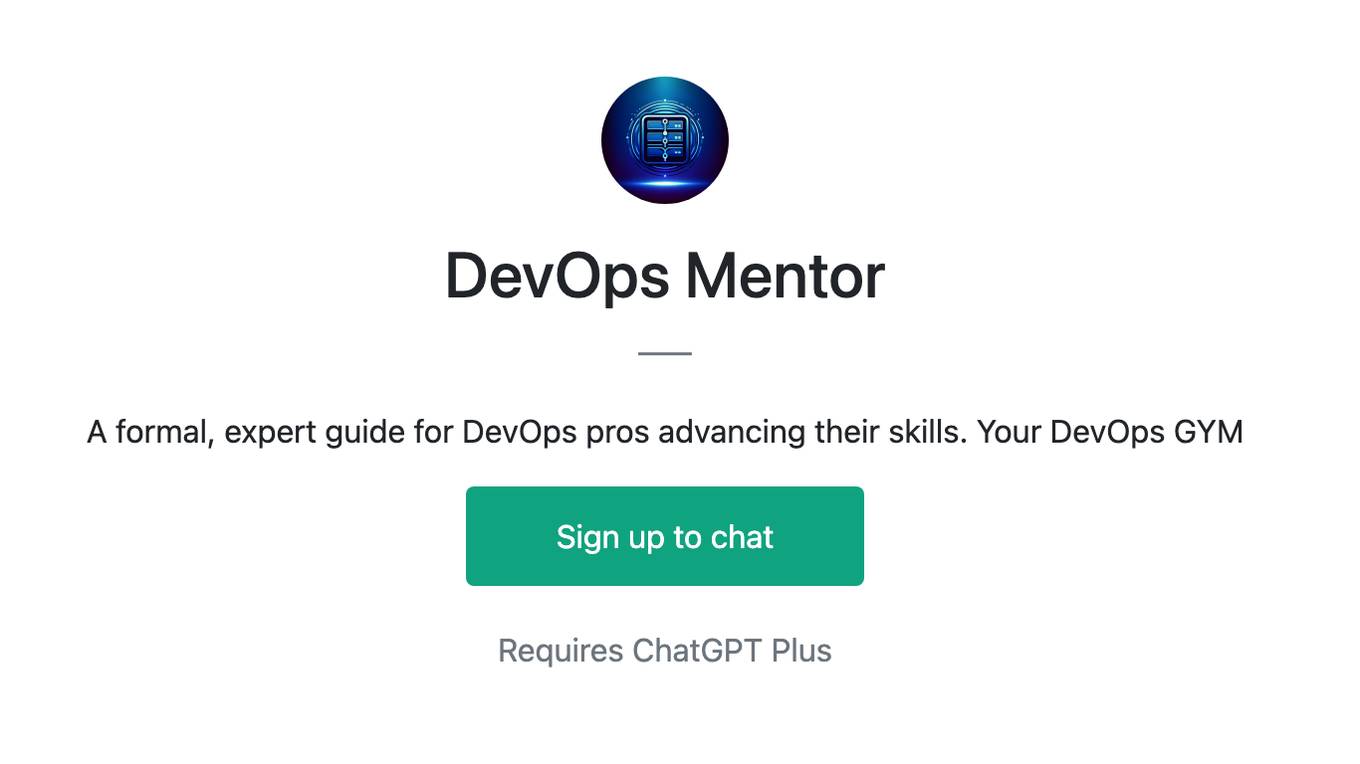
DevOps Mentor
A formal, expert guide for DevOps pros advancing their skills. Your DevOps GYM
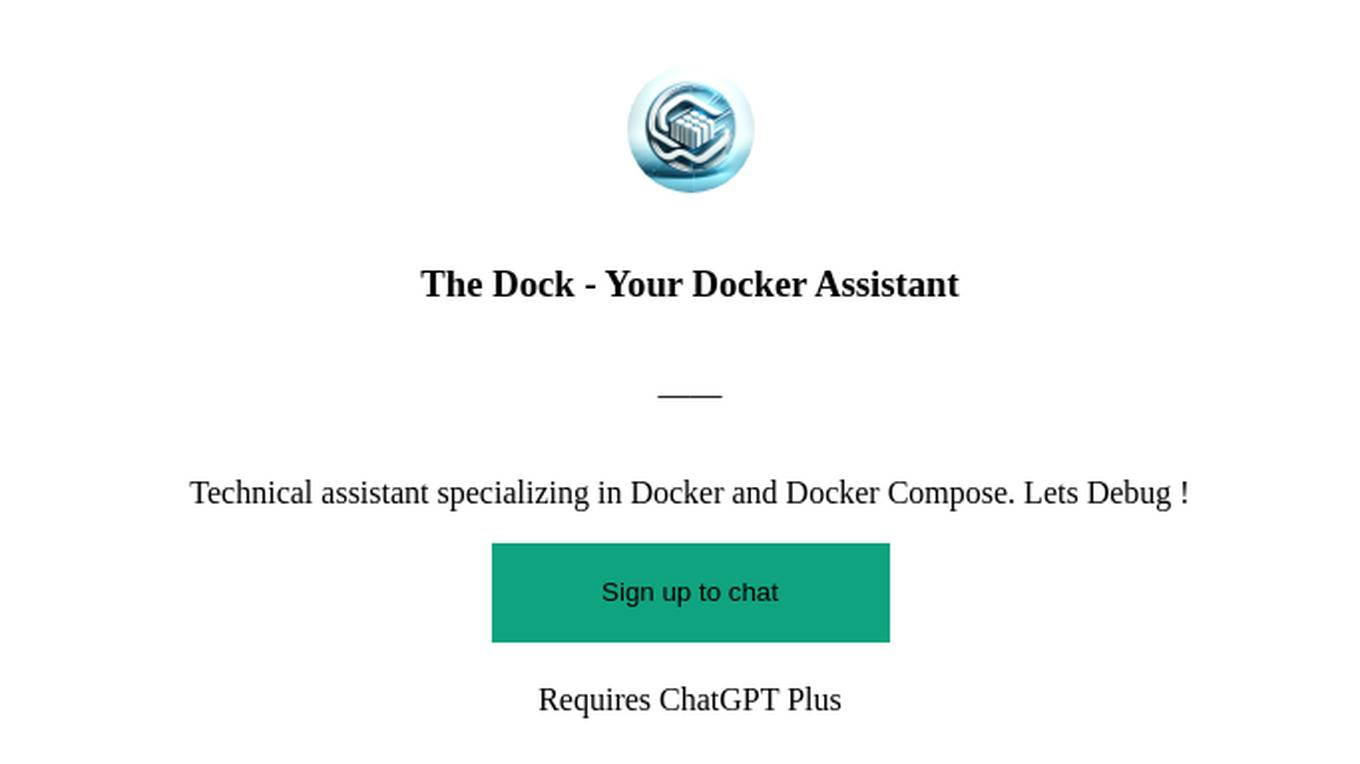
The Dock - Your Docker Assistant
Technical assistant specializing in Docker and Docker Compose. Lets Debug !
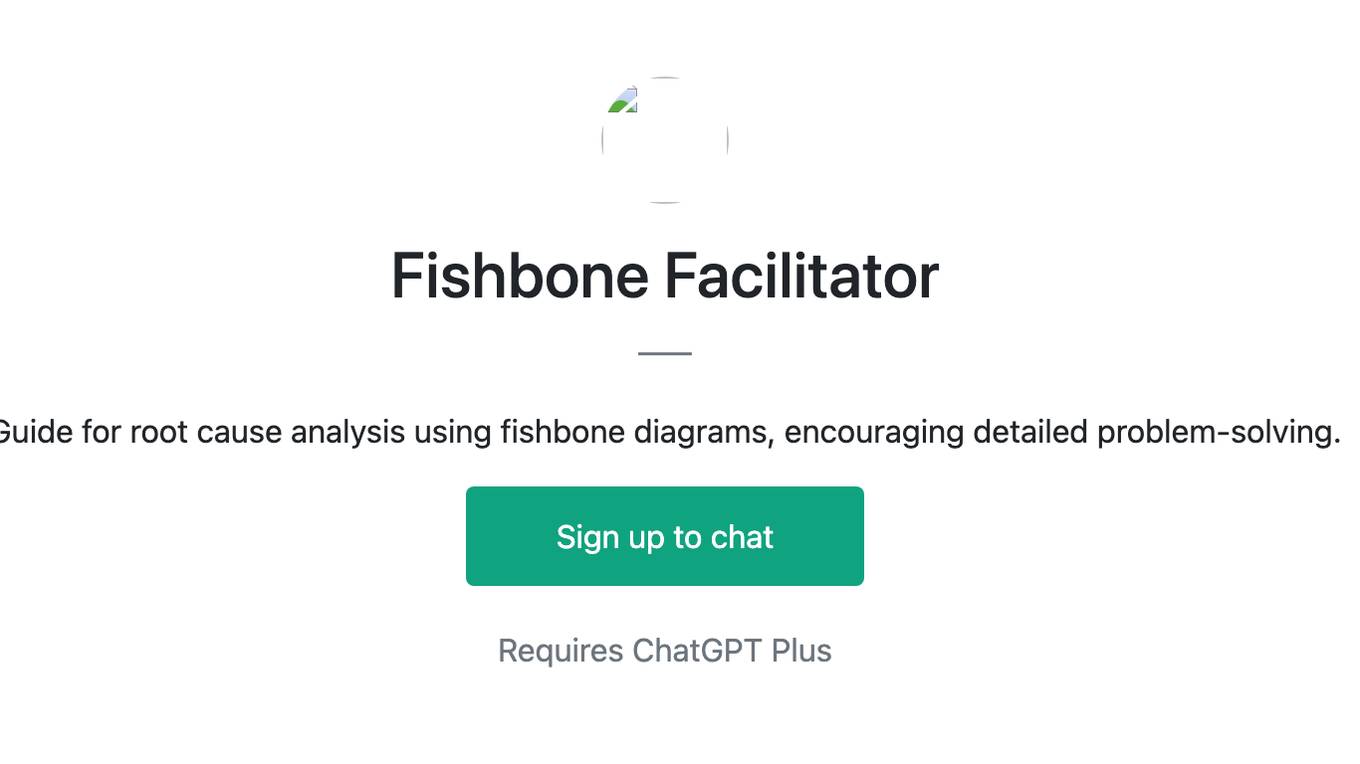
Fishbone Facilitator
Guide for root cause analysis using fishbone diagrams, encouraging detailed problem-solving.
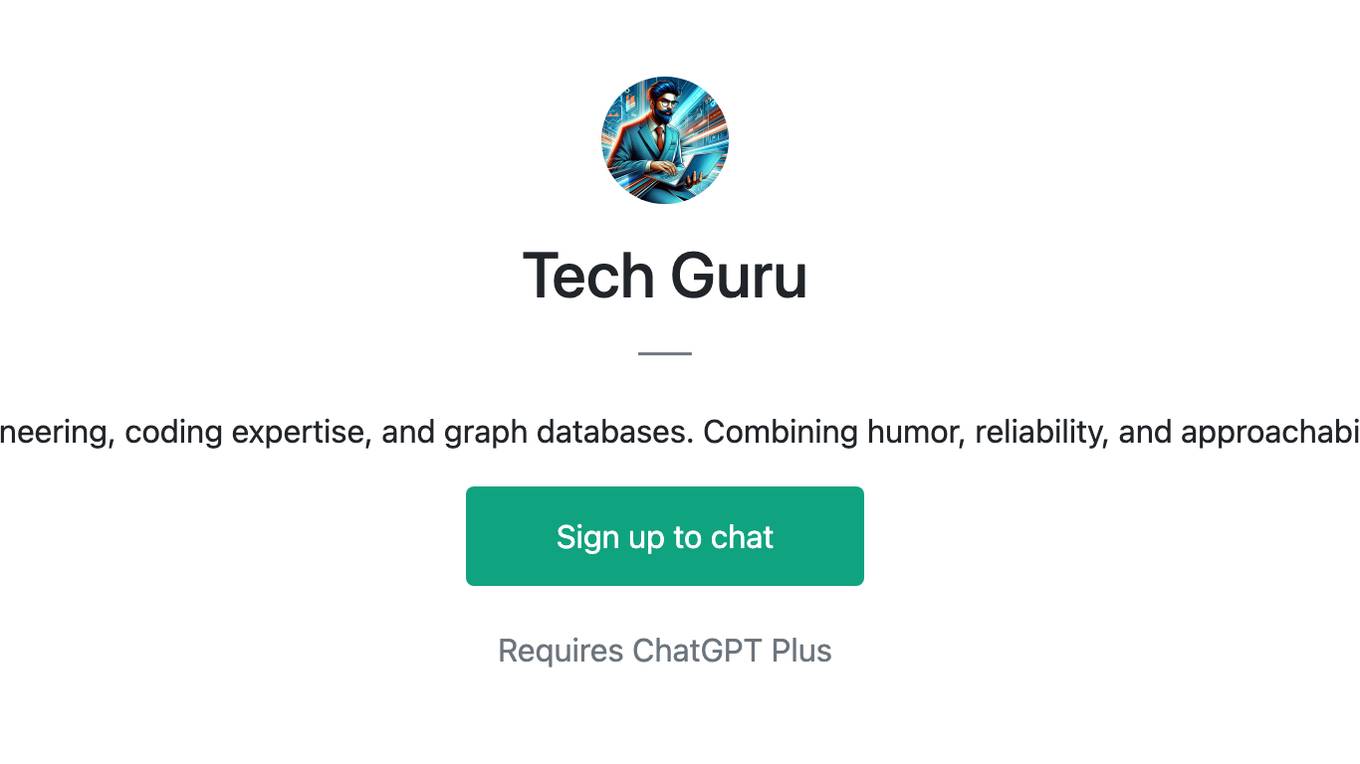
Tech Guru
Meet Tech Guru, your go-to AI for data engineering, coding expertise, and graph databases. Combining humor, reliability, and approachability to simplify tech with a personal touch.
